Your search “Keep%20the%20Death%20Penalty%20Abolished%20fin%20the%20Philippfines%20%20%20%20%20%20%20%20%20%20/page/www.centaurtheatre.com”

Article(s)
Papua New Guinea: one step away from full abolition of the death penalty
By Aurélie Plaçais, World Coalition Against the Death Penalty, on 21 January 2022
Papua New Guinea’s National Parliament voted to repeal the death penalty on 20 January2022. The bill has now to be signed into law and to be published in the official gazette.
2022
Moratorium
Papua New Guinea
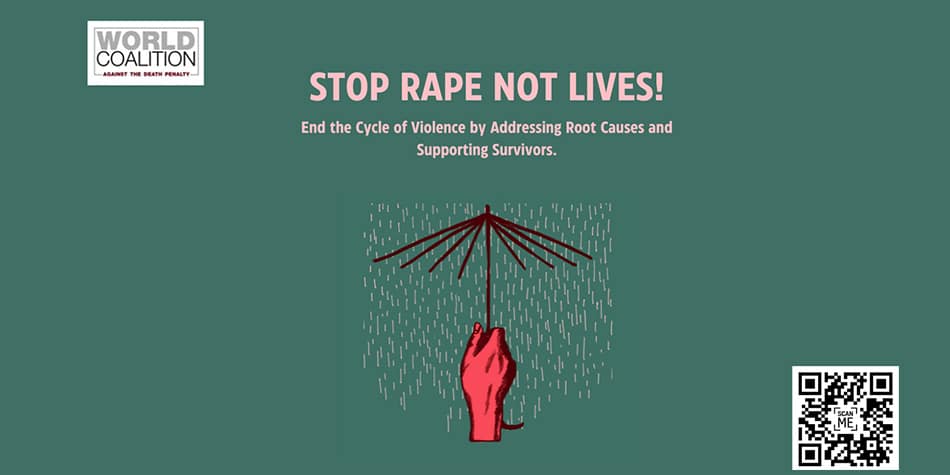
Article(s)
Why is the Death Penalty not the answer to Rape?
By Morine Chauvris, on 8 July 2024
Every October 10th, the World Coalition against the death penalty and its members celebrates the World Day against the Death penalty. In 2024 and 2025, the abolitionist movement will focus on challenging the widespread misconception that the death penalty enhances safety for individuals and communities.
2024
Women
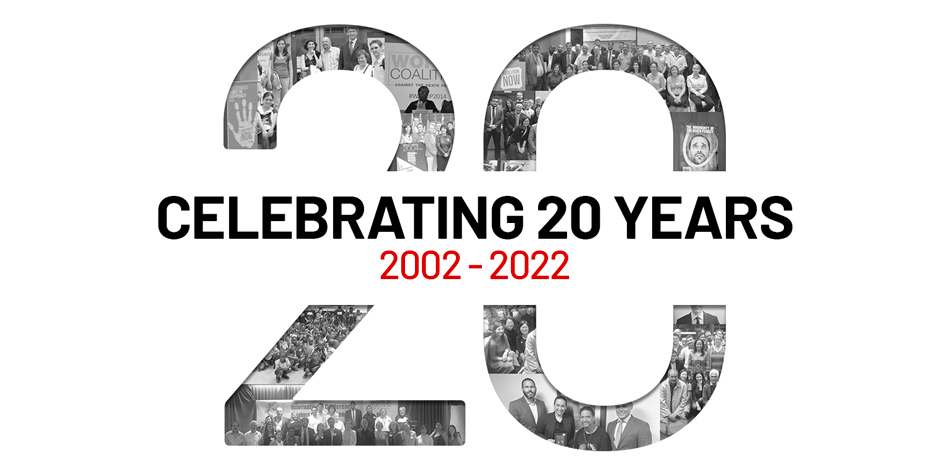
Article(s)
The World Coalition Against the Death Penalty celebrates its 20th anniversary!
on 13 May 2022
For this occasion, we wanted to give the floor to our founding member organizations. 20 years of memories, meetings, activism and fight with the hope to see one day a world without death penalty. Discover those testimonials in our newsletter.
2022
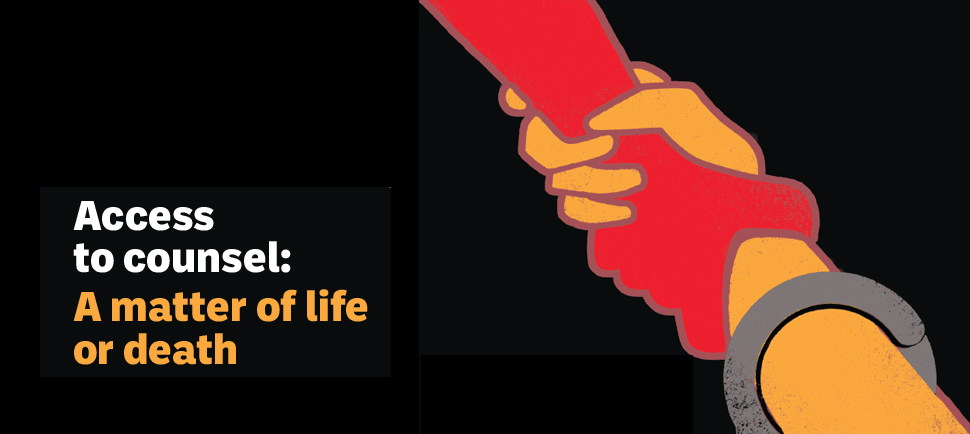
Article(s)
The 18th World Day Against the Death Penalty Highlights the Life-Saving Importance of Effective Legal Representation in Capital Cases
By Gia Tongson, on 18 November 2020
The 18th World Day Against the Death Penalty explored the theme “Access to Counsel: A Matter of Life or Death” in light of the continued execution of individuals who struggle to have adequate support from their lawyers, who consequently also face their own challenges in the judicial system. Having access to qualified and effective representation […]
2020
Australia
Belgium
Canada
Congo
Egypt
Fair Trial
France
Kazakhstan
Philippines
Portugal
Uganda

Article(s)
How Business May Contribute to Universal Abolition
By Louis Linel, on 29 January 2021
Non-governmental organizations (NGOs) have long been at the forefront of the movement for human dignity, as the main, highly-specialized – and sometimes isolated– champions for social justice. However, a new generation of advocates from the private sector, whose primary center of interest or area of expertise seems disconnected from international human rights standards, has been […]
2021
Public Opinion
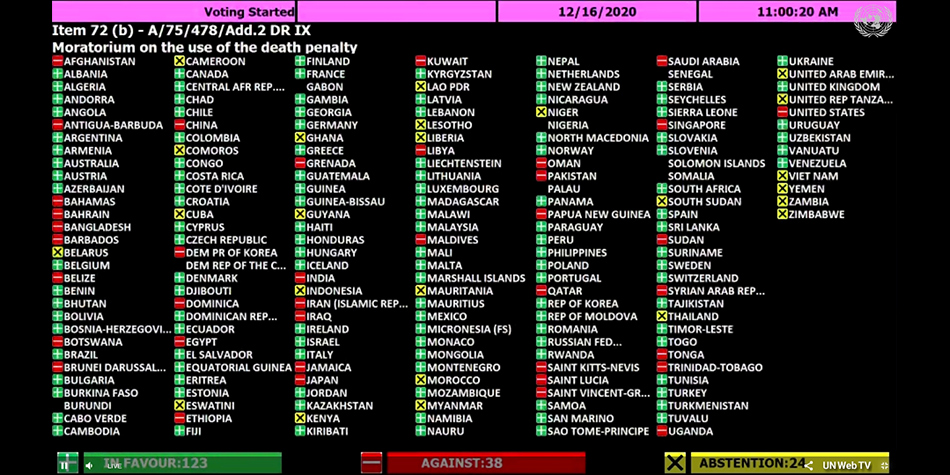
Article(s)
Statement on the Adoption of the 8th UN General Assembly Resolution for a Moratorium on the Use of the Death Penalty
By World Coalition Against the Death Penalty, on 17 December 2020
The World Coalition Against the Death Penalty warmly congratulates the United Nations General Assembly (UNGA) on the adoption of Resolution A/RES/75/183 for a moratorium on the use of the death penalty, which was adopted by a great majority of 123 UN Member States on 16 December 2020.
2020
Moratorium
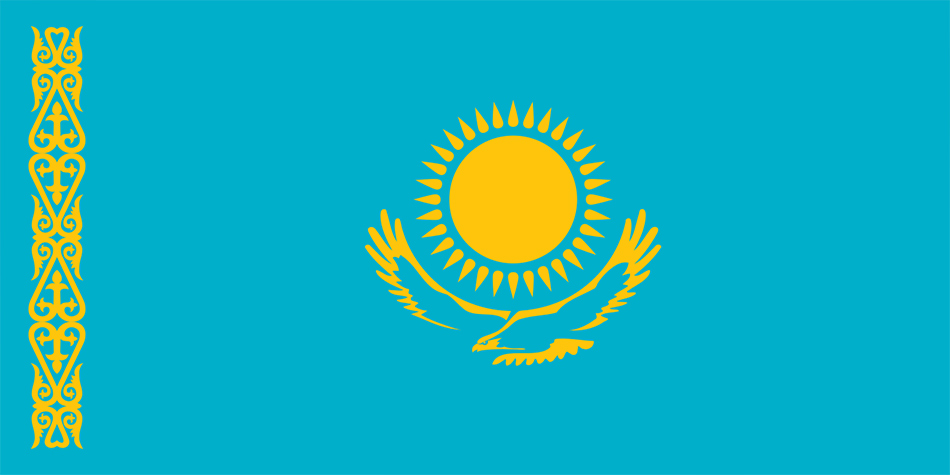
Article(s)
Kazakhstan Ratifies the Second Optional Protocol to the ICCPR
By Aurélie Plaçais, on 1 April 2022
Kazakhstan ratified the UN treaty aiming at the abolition of the death penalty on 24 March 2022.
2022
Kazakhstan
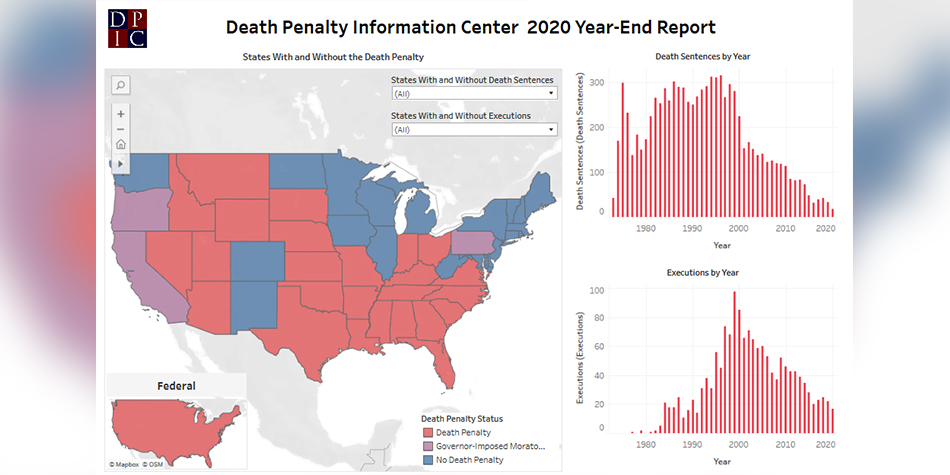
Article(s)
DPIC’s Report on the 2020 Death Penalty Usage in the US
By Louis Linel, on 6 January 2021
TheDeath Penalty Information Center’s 2020 annual report highlights the continuing trend toward abolition in the US and the resumption of federal executions in a challenging COVID-19 context.
2021
United States

Article(s)
246 People Removed from Death Rows in Zambia
on 29 January 2021
President Edgar Lungo announced, on 27 January 2021, that 246 death sentences had been commuted into life, a more than welcome decision that has brought the overall number of commutations to over 500 since 2015.
2021
Clemency
Zambia
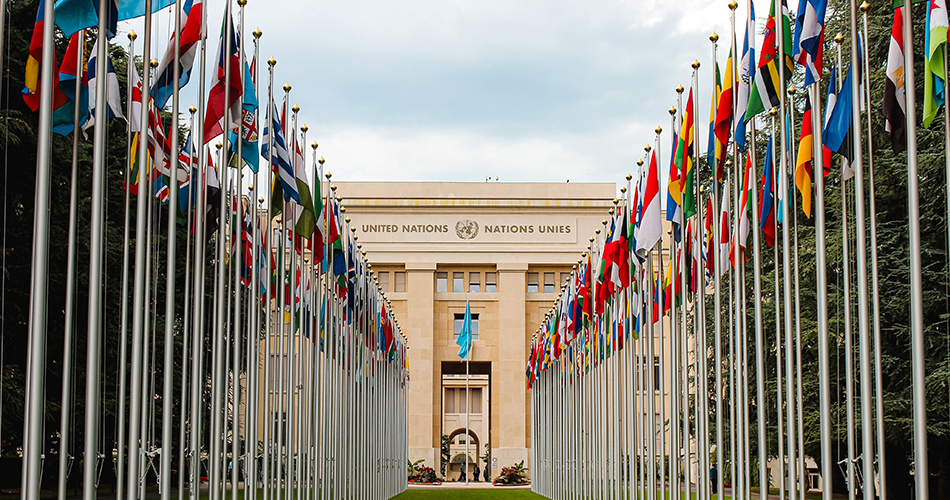
Article(s)
120 UN Member States Support the Moratorium at Committee Vote
By Louis Linel, on 18 November 2020
On 17 November, the Third Committee of the United Nations General Assembly has adopted a draft resolution calling upon UN Member States to observe a moratorium on executions.
2020
Congo
Democratic Republic of the Congo
Djibouti
Eswatini
Guinea
Lebanon
Mexico
Moratorium
Nauru
Philippines
Republic of Korea
Sierra Leone
Switzerland

Article(s)
Singapore: Authorities must end executions and stop targeting anti-death penalty activists to curb criticism
By World Coalition Against the Death Penalty, on 28 August 2024
We, the undersigned seven organizations, are gravely concerned by developments in Singapore since the beginning of August 2024, which has seen the authorities carry out two executions in violation of international safeguards on the death penalty, as well as limiting the right to freedom of expression of the Transformative Justice Collective, a non-governmental organization who […]
2024
Singapore

Article(s)
In support and solidarity with “No Death Penalty Tuesdays” abolitionist movement in Iran
By World Coalition Against the Death Penalty, on 28 August 2024
Every six hours, one person was executed in Iranian prisons in the first 20 days of August. Execution numbers have been rising every year since 2021, with at least 834 people executed in 2023, and 395 executions recorded by Iran Human Rights as of 26th August 2024.
Iran (Islamic Republic of)

Article(s)
Abolition of the death penalty at the United Nations Human Rights Council 56th session
on 30 August 2024
The United Nations Human Rights Council met for its 56th Regular Session from June 18 to July 12, 2024. If you missed it, here is what happened regarding the abolition of the death penalty!
2024
Trend Towards Abolition
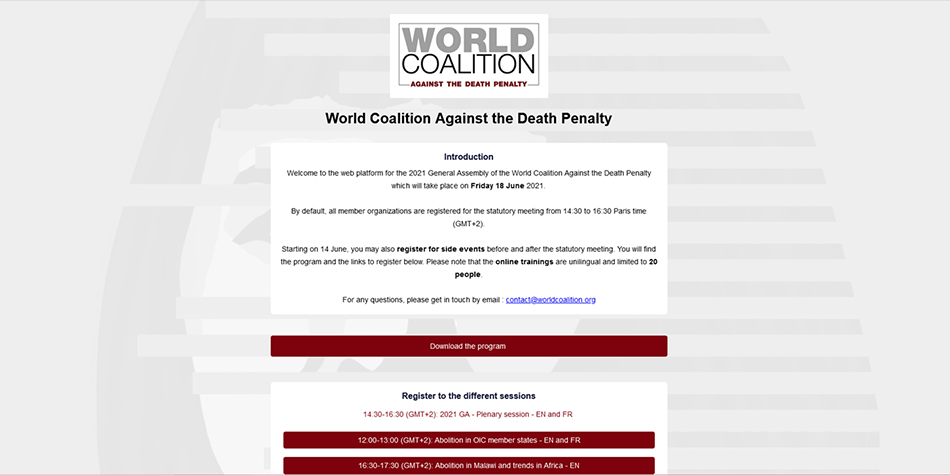
Article(s)
Program of the 18 June 2021 General Assembly
By World Coalition Against the Death Penalty, on 15 June 2021
If you are a member organization, join the fantastic program we will have on Friday 18 June!
2021
Juveniles
Women
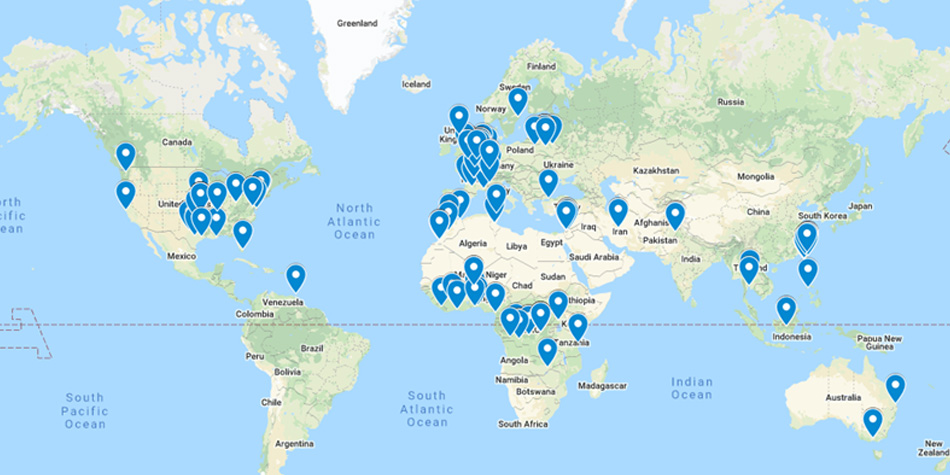
Article(s)
Take Action for World Day 2021!
By World Coalition Against the Death Penalty, on 10 September 2021
Take action now! The 19th World Day Against the Death Penalty is an excellent opportunity to publicly oppose the use of this inhumane punishment and to support those who are fighting for its abolition all over the world.
2021
Drug Offenses
Fair Trial
Women
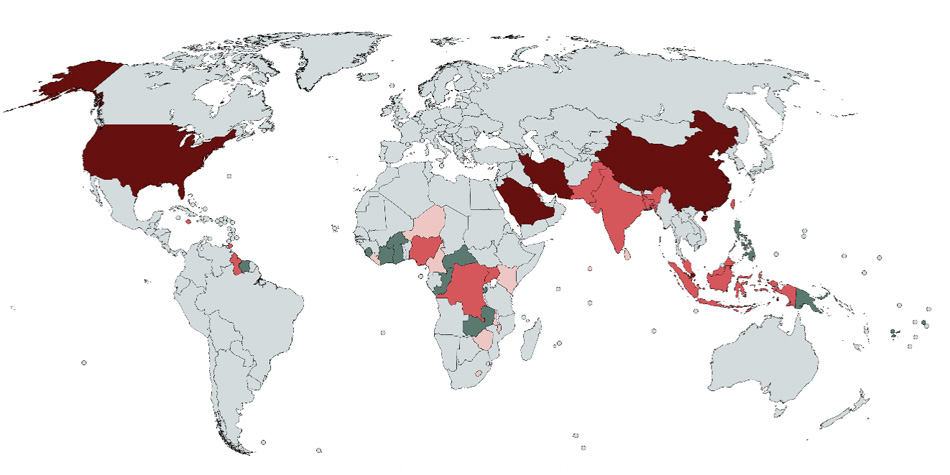
Article(s)
Strengthening the Abolitionist Movement: Launch of the Global Consortium for Death Penalty Abolition
By World coalition against the death penalty, on 12 July 2024
Despite a growing number of countries worldwide joining the abolitionist movement every year, bringing the prospect of universal abolition closer to reality, the death penalty remains a significant human rights concern.
2024
Trend Towards Abolition

Article(s)
Sierra Leone abolishes the Death Penalty
By World Coalition Against the Death Penalty , on 2 August 2021
On Friday 23rd July 2021, Sierra Leone’s Parliament unanimously abolished the death penalty by passing the Abolition of the Death Penalty Act.
2021
Public Opinion
Sierra Leone

Article(s)
Calling Upon the Council of Paris to Overhaul Bahrain-Owned Paris FC’s Subsidy
By Americans for Democracy and Human Rights in Bahrain, on 5 February 2021
This Tuesday, on February 2, 2021, the Council of Paris will announce its position on the renewal of the yearly €500,000 subvention allocated to the Paris FC.
2021
Bahrain
Cruel, Inhuman and Degrading Treatment and Punishment
Moratorium

Article(s)
Armenia ratifies international treaty for irreversible abolition of the death penalty
By Aurélie Plaçais, on 25 March 2021
Armenia ratified the Second Optional Protocol to the ICCPR on 18 March 2021.
2021
Armenia

Article(s)
The Commonwealth of Virginia Abolishes the Death Penalty
By Louis Linel, on 25 March 2021
Virginia became the 23rd US State to formally ban capital punishment on 24 March 2021.
United States
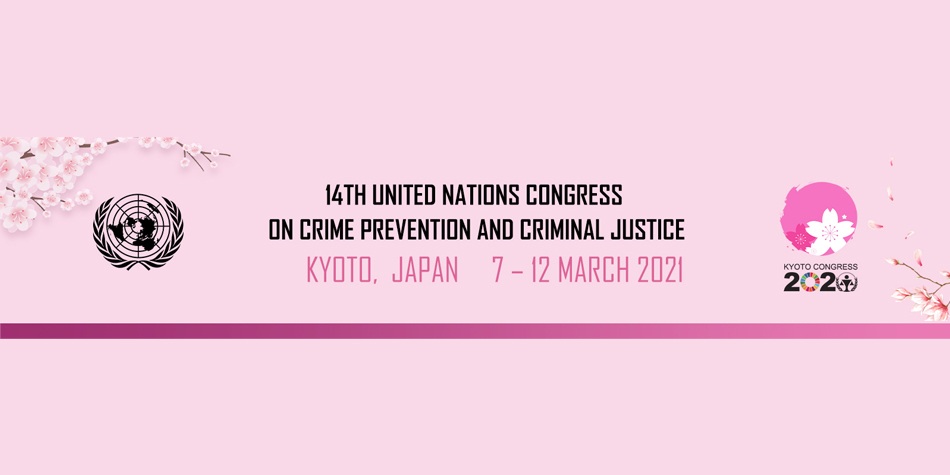
Article(s)
Recapping the UN Crime Congress in Kyoto
By Teppei Ono, CPR, on 15 March 2021
The United Nations Congress on Crime Prevention and Criminal Justice was held in Kyoto, Japan from 7 to 12 March 2021.
2021
Public Opinion
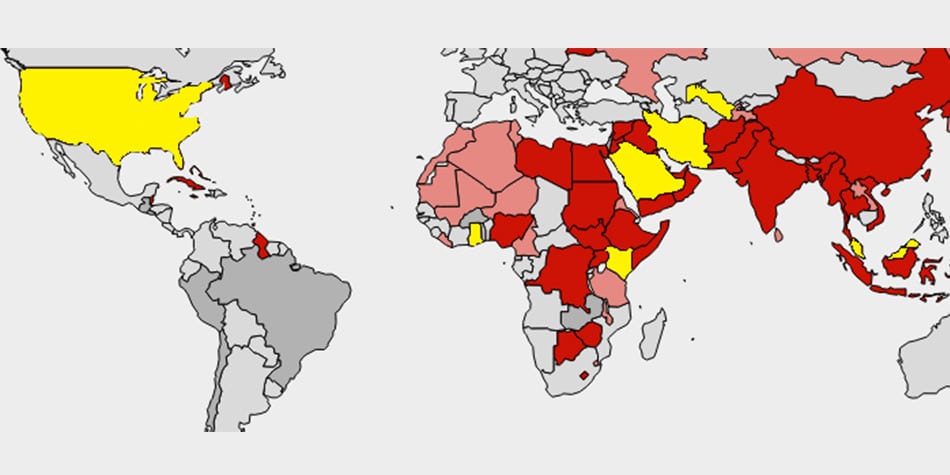
Article(s)
Mid-terms: A first half of 2023 marked by multiple abolitions
By Nellia Halimi, on 9 October 2023
The first seven months of 2023 have been rich for the abolitionist community with a new abolitionist country, a new abolitionist state in the United States, as well as progress for abolition within multiple countries. However, some countries continue to use the death penalty and there have been alarming increases in executions.
2023
Ghana
Iran (Islamic Republic of)
Kenya
Malaysia
Saudi Arabia
Singapore
Trend Towards Abolition
United States
Uzbekistan
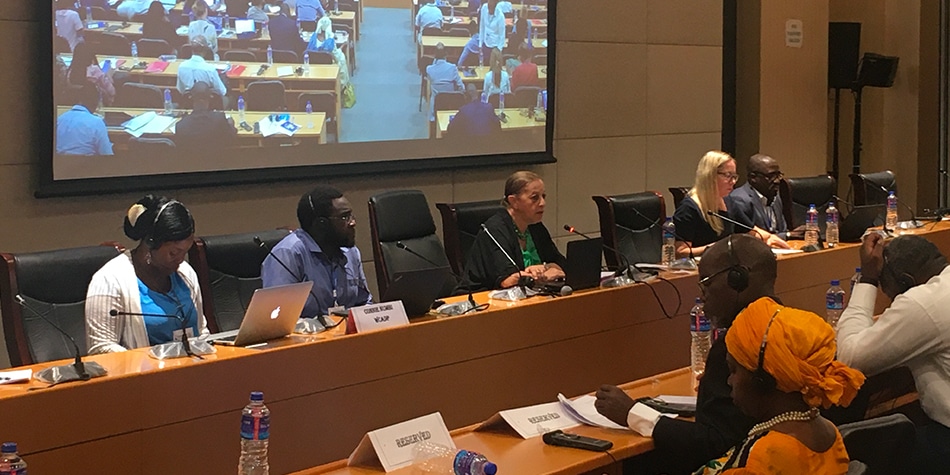
Article(s)
73rd Ordinary Session of the African Commission of Human and Peoples’ Rights: In- Person, Advocating Against the Death Penalty
By Bronwyn Dudley & Connie Numbi, on 16 December 2022
After nearly 3 years, the ACHPR (African Commission on Human and Peoples’ Rights) met in-person in Banjul, The Gambia to hold their 73rd Ordinary Session from 21st October – 10th November 2022.
2022
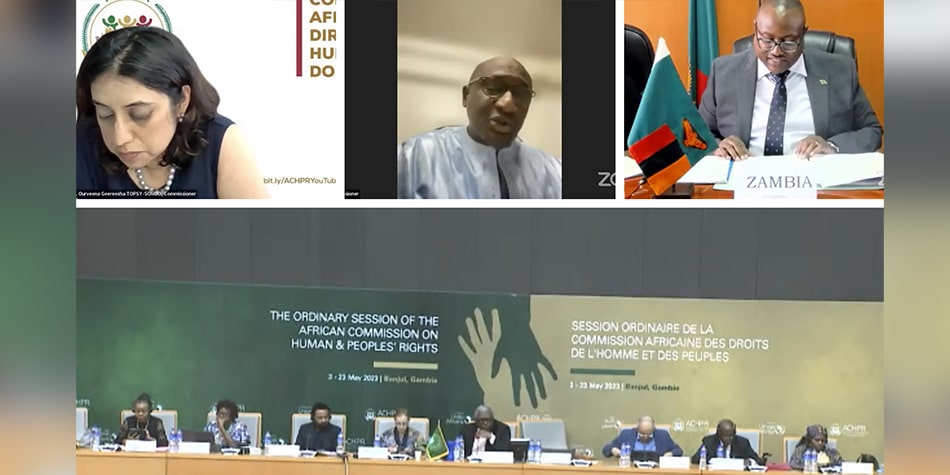
Article(s)
75th Ordinary Session of the African Commission of Human and Peoples’ Rights
By Wendy Adouki, World Coalition Against the Death Penalty, on 15 August 2023
From 3rd to 23rd May 2023, the African Commission on Human and Peoples’ Rights (ACHPR) held its 75th Ordinary Session for the first time in a hybrid format with participants both attending online and in person in Banjul, the Gambia, seat of the ACHPR.
2023
Trend Towards Abolition
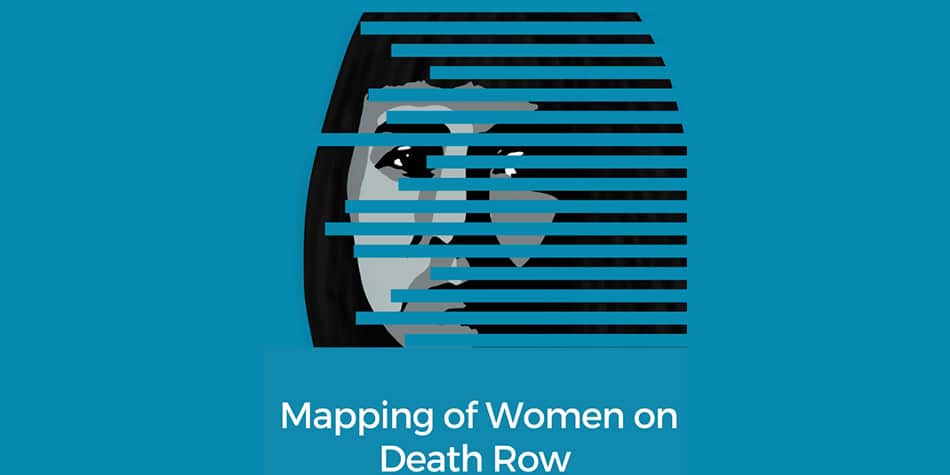
Article(s)
World Coalition Publishes Country Mapping Report on Women on Death Row
By World coalition against the death penalty, on 8 September 2023
To obtain a global view of existing data on women sentenced to death, the World Coalition carried out a systematization exercise of new data, compiled in a report published in August 2023.
2023
Women

Article(s)
Abolition of the death penalty at the United Nations Human Rights Council 53rd session
By World coalition against the death penalty, on 18 September 2023
The United Nations Human Rights Council met for its 53rd Regular Session from June 19 to July 14, 2023. If you missed it, here is what happened regarding the abolition of the death penalty!
2023
Trend Towards Abolition

Article(s)
Calling on international bodies to condemn drug executions in Saudi Arabia and seek to stop them
By European Saudi Organization for Human Rights, on 1 December 2022
The European Saudi Organization for Human Rights and Harm Reduction International, and the World Coalition Against the Death Penalty along with 32 other NGOs have called on the International Narcotics Control Board and the United Nations Office on Drugs and Crime to act on urgent measures in response to the series of drug-related executions carried […]
2022
Drug Offenses
Saudi Arabia
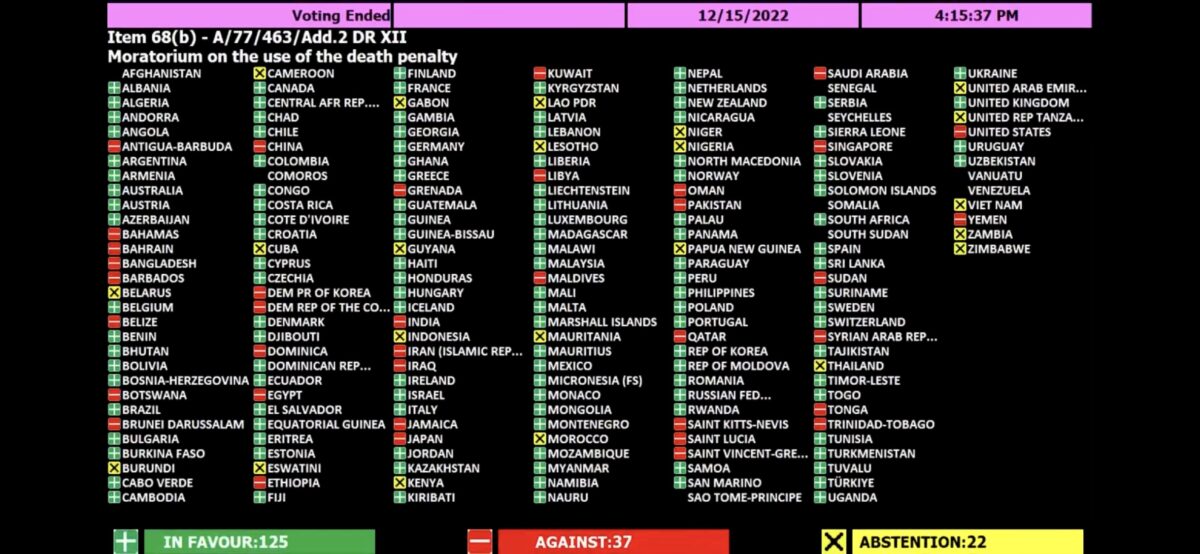
Article(s)
9th Resolution for a moratorium on the death penalty: the trend is growing
By World Coalition Against the Death Penalty, on 20 December 2022
On 15 December 2022, the United Nations General Assembly adopted the 9th resolution for a moratorium on the use of the death penalty with 125 votes in favor (2 more than in 2020), 37 votes against, 22 abstentions and 9 absent.
2022
Moratorium
Trend Towards Abolition
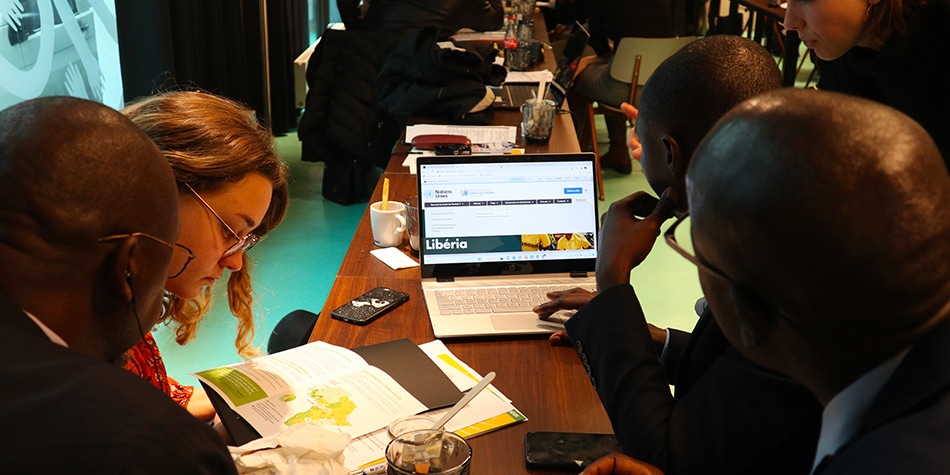
Article(s)
Advocacy Seminar Held in Berlin for French-Speaking Sub-Saharan Africa Members
By World Coalition Against the Death Penalty, on 26 January 2023
In the margins of the 8th World Congress Against the Death Penalty, member organizations of the World Coalition Against the Death Penalty (World Coalition) and FIACAT’s African ACATs (Féderation international des Action des Chrétiens pour l’abolition de la torture) met in Berlin, Germany for an advocacy seminar.
2023
Benin
Burkina Faso
Cameroon
Central African Republic
Chad
Congo
Côte d'Ivoire
Democratic Republic of the Congo
Guinea
Madagascar
Mali
Niger
Senegal
Togo
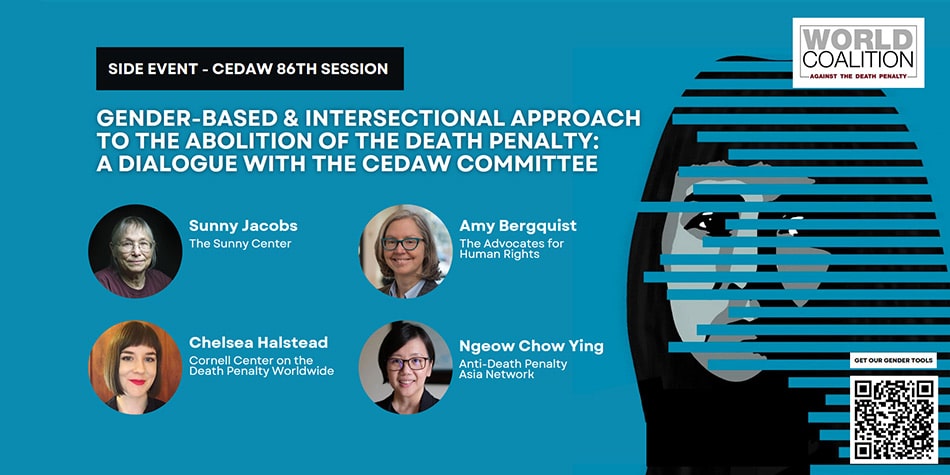
Article(s)
CEDAW experts welcome World Coalition members in the #CEDAW86 side event on gender and the death penalty
By Venus Aves, on 8 November 2023
On 22 October 2023, the World Coalition Against the Death Penalty (World Coalition) organized a closed-door side event on a gender-based and intersectional approach to abolition as part of the 86th session of the Committee on the Elimination of Discrimination Against Women (CEDAW).
2023
Gender

Article(s)
Moratorium Stays in Place in Sri Lanka and Anti-Death Penalty Petitioners Secure an Official Record in Court Proceedings to Protect Future Rights
By World Coalition Against the Death Penalty, on 28 March 2023
Petitioners challenging the potential resumption of executions in Sri Lanka experienced received reassuring news on 23 February 2023 when the Attorney General of Sri Lanka reported to the Supreme Court that the incumbent President Ranil Wickremesinghe has agreed to not implement executions during his tenure.
2023
Sri Lanka
Trend Towards Abolition
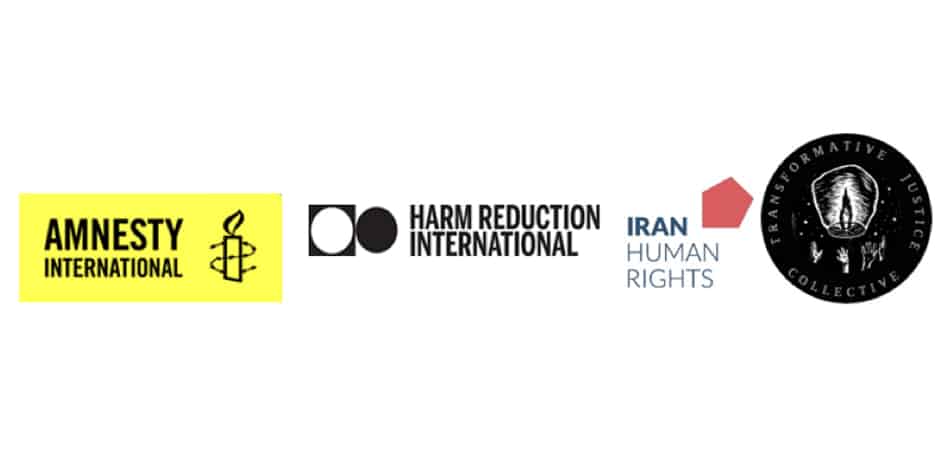
Article(s)
World Drugs Day: UNODC must act to stop the use of death penalty for drug-related offences and urge states to end executions
By Amnesty International, Harm Reduction International, Iran Human Rights, Transformative Justice Collective, on 27 June 2023
On 26 June, the UN Office on Drugs and Crime (UNODC) is marking World Drugs Day with the theme “People first: stop stigma and discrimination, strengthen prevention”, and launched another edition of the World Drug Report. Sadly, as has been the case over the years, UNODC has failed to raise concerns over the continued use […]
2023
Drug Offenses

Article(s)
How Likely Is the Return of the Death Penalty in Israel?
By World Coalition against the Death Penalty, on 22 May 2023
Early 2023, the newly elected government of Israel announced an ensemble of judicial reforms; including a new bill that would introduce the death penalty for acts of terrorism. As of May 2023, the judicial reforms have been put on hold by the PM Netanyahu. This article takes a historical perspective to recontextualize the issue of […]
2023
Israel
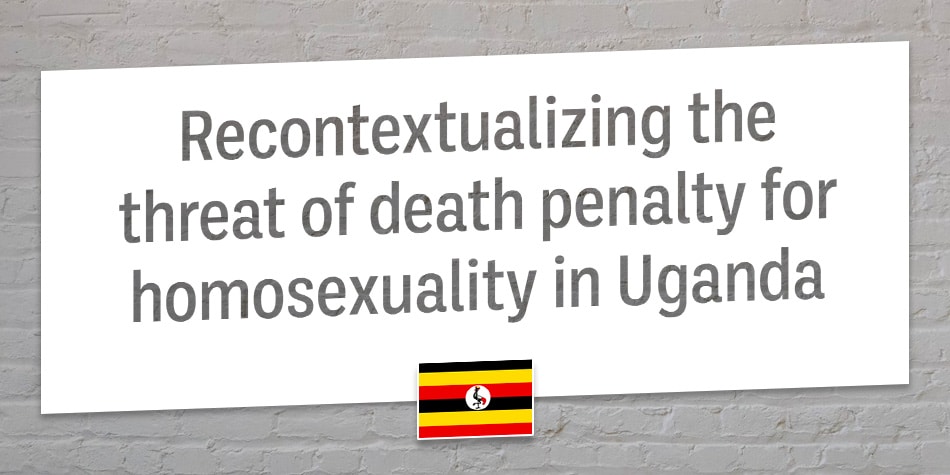
Article(s)
Recontextualizing the threat of death penalty for homosexuality in Uganda
By Méline Szwarcberg, on 2 May 2023
On Tuesday March 21, the Ugandan parliament passed a law that severely criminalizes people who have consensual same-sex relations. At the end of April, the law had still not been validated by the President Museveni. Among a range of harsh penalties, the law would allow the death penalty for the crime of « aggravated homosexuality […]
2023
Gender
Uganda
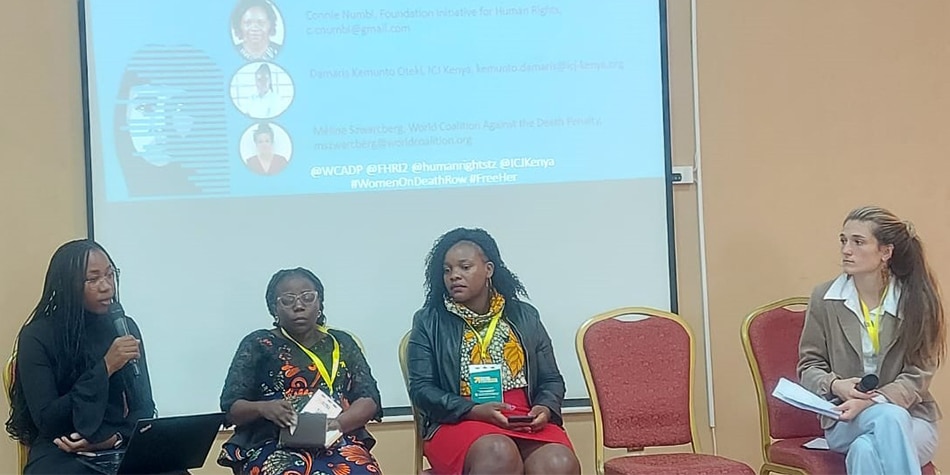
Article(s)
Advocating for the recognition of women sentenced to death in the fight for women’s rights
By World coalition against the death penalty, on 15 August 2023
From July 16 to 20, a World Coalition delegation comprising Connie Numbi of Foundation for Human Rights Initiative Uganda, Dr Anna Henga of Legal Human Right Center Tanzania, Damaris Kemunto of the Kenyan Section of the International Commission of Jurists (ICJ Kenya), and Méline Szwarcberg, Women and Gender Project Manager at the World Coalition, attended […]
2023
Gender
Women

Article(s)
UN High Level Panel on the death penalty and limitation to the most serious crimes
By World coalition against the death penalty, on 14 March 2023
On February 28 2023, the United Nations (UN) Human Rights Council held its biennial high-level panel on the issue of the death penalty.
2023
Public Opinion
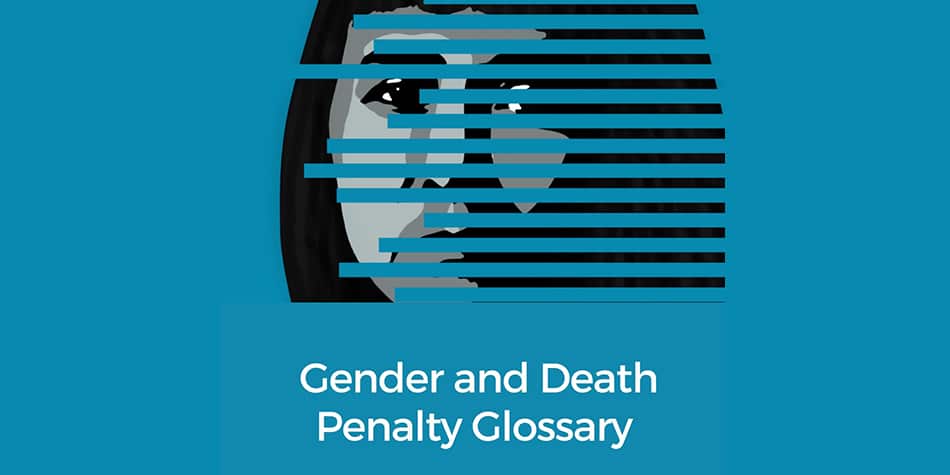
Article(s)
World Coalition launches glossary on gender and the death penalty
By World coalition against the deaht penalty, on 15 August 2023
As part of its efforts to mainstream a gender lens in the abolitionist movement, the World Coalition Against the Death Penalty just released a glossary on gender and the death penalty. The first of its kind, this publication presents and defines terms relevant to gender-sensitive abolitionist work that recognize the various forms of gender-based discrimination […]
2023
Gender
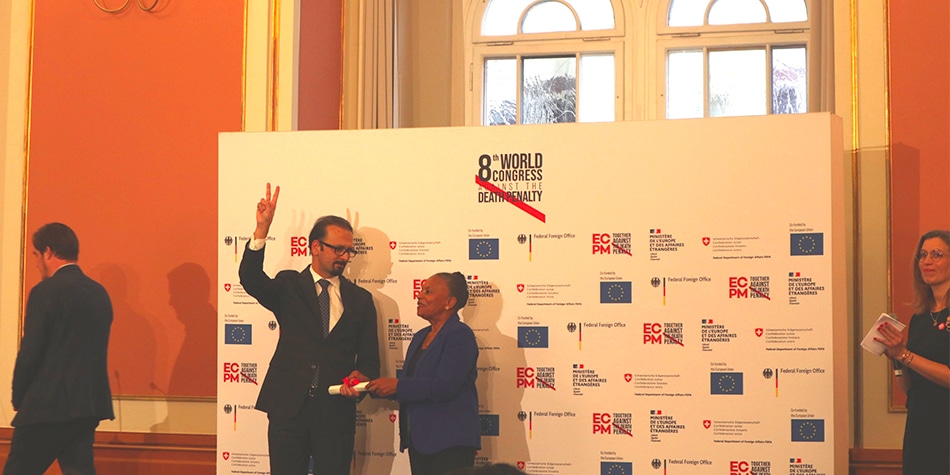
Article(s)
A Very Moving and Inspiring Closing Ceremony
By Dunia Schaffa, on 30 January 2023
The Closing Ceremony of the 8th World Congress celebrated people who play an immense role in the process of the abolition of the death penalty, with an awards ceremony and a tribute.
2023
Trend Towards Abolition

Article(s)
Reflecting on the links between the death penalty and gender-based violence
By World Coalition Against the Death Penalty, on 25 November 2022
On 25 November 2022, International Day for the Elimination of Violence against Women, the World Coalition Against the Death Penalty, through the testimony of representatives of abolitionist member and partner organizations, wishes to raise awareness of the links between the death penalty and violence against women and gender minorities and call out the unjust and […]
2022
Gender
Kenya
Sri Lanka
Uganda
Women

Article(s)
Abolition of the death penalty at the United Nations Human Rights Council 52nd session
By World coalition against the death penalty, on 22 May 2023
The United Nations Human Rights Council met for its 52nd Regular Session from February 27 to April 4, 2023. If you missed it, here is what happened regarding the abolition of the death penalty!
2023
Trend Towards Abolition

Article(s)
Abolition of the death penalty at the 50th session of the UN Human Rights Council
By Anissa Aguedal, on 19 August 2022
The United Nations Human Rights Council met for its 50th Regular Session from June 13 to July 8, 2022. If you missed it, here is what happened regarding the abolition of the death penalty!
2022
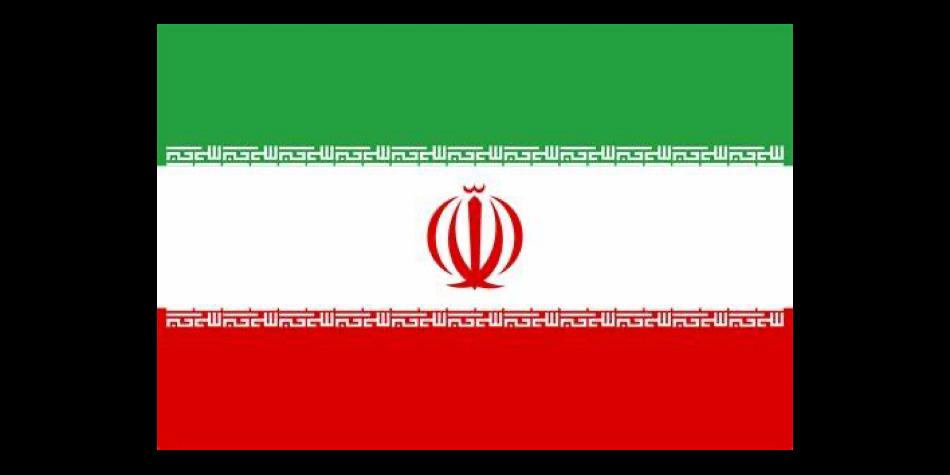
Article(s)
Joint Statement to condemn the public executions and the surge of executions in 2022 in Iran
By World Coalition Against the Death Penalty, on 11 August 2022
The World Coalition Against the Death Penalty strongly condemn the resumption of public executions in Iran and the surge in the executions in 2022, which goes against the international trends towards abolition of the death penalty.
2022
Iran (Islamic Republic of)

Article(s)
TAIWAN: CONSTITUTIONAL COURT TO HEAR CHALLENGE TO DEATH PENALTY LAW
By World coalition against the death penalty, Amnesty International, on 23 April 2024
On 23 April 2024 the Constitutional Court of Taiwan will hear a challenge on the constitutionality of the death penalty in the country. Amnesty International Taiwan and the World Coalition Against the Death Penalty are among several non-governmental organizations intervening in the case, in support of the full abolition of the death penalty.
2024
Taiwan
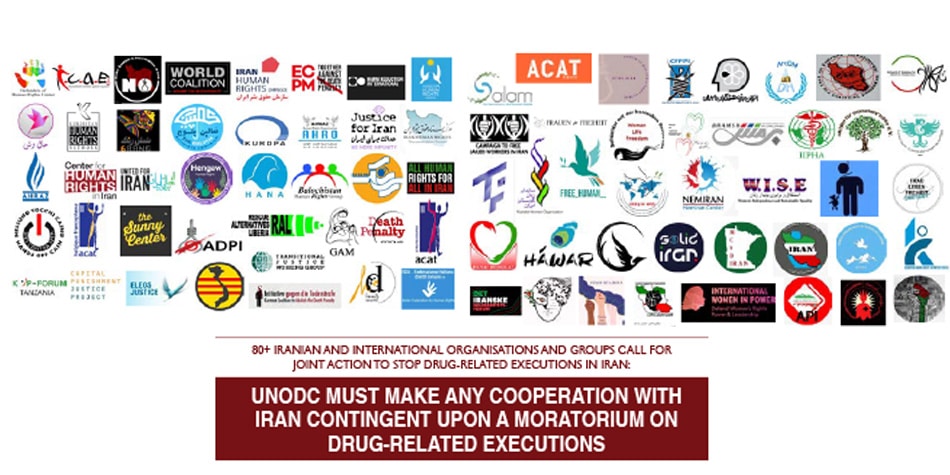
Article(s)
Call for joint action to stop drug-related executions in Iran
on 3 May 2024
April 10, 2024 Iran Human Rights (IHRNGO) and 83 Iranian and international organisations and groups have called for joint action to stop drug-related executions, urging UNODC to make “any cooperation with the Islamic Republic contingent on a complete halt on drug-related executions”. They have announced the start of a mass international campaign in this regard.
2024
Drug Offenses
Iran (Islamic Republic of)
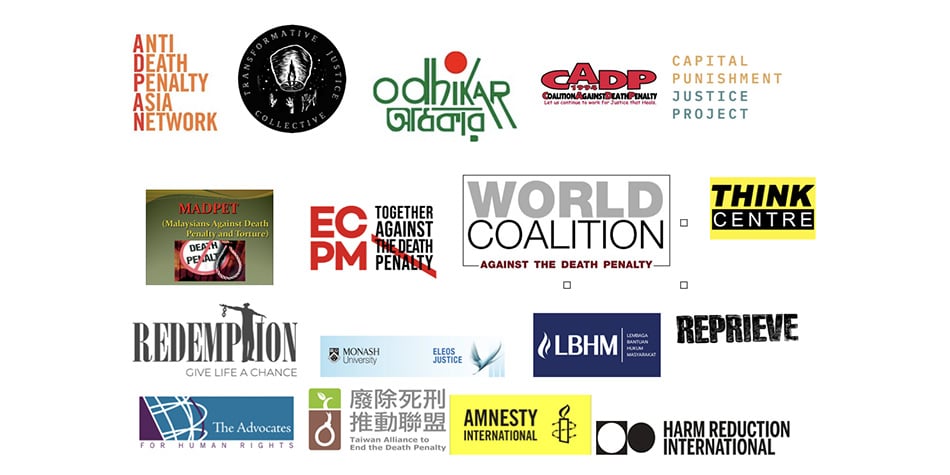
Article(s)
Calling on Singapore to respect international safeguards and halt executions
on 3 May 2024
We are greatly concerned by the news that the Government of Singapore has issued at least five execution notices since 12 April 2024, all cases in relation to drug offending. Transformative Justice Collective, a member of the Anti-Death Penalty Asia Network, reports that in four of these five cases, the execution was stayed at the […]
Drug Offenses
Fair Trial
Legal Representation
Singapore

Article(s)
Take Action for World Day 2022!
By World coalition against the death penalty, on 9 September 2022
Take action now! The 20th World Day Against the Death Penalty is an excellent opportunity to publicly oppose the use of this inhumane punishment and to support those who are fighting for its abolition all over the world. > Spread the word on Facebook, Twitter and Instagram: #nodeathpenalty > Find out more about the World […]
2022
Cruel, Inhuman and Degrading Treatment and Punishment
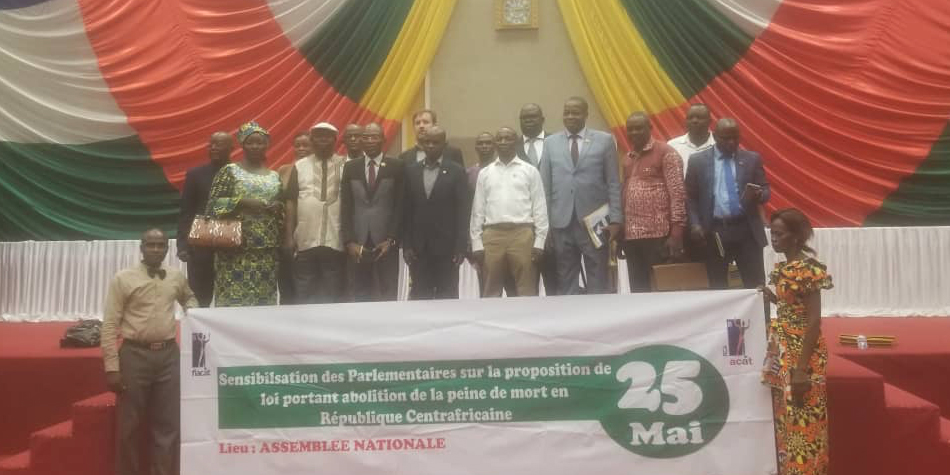
Article(s)
Central African Republic Becomes 24th African State to Abolish the Death Penalty
By ACAT-RCA, ECPM, FIACAT, on 26 June 2022
The President of the Central African Republic promulgated the law abolishing the death penalty on June 27 2022, one month after the National Assembly passed the law. CAR is now the 24th abolitionist state in Africa and the 111th in the world.
2022
Central African Republic
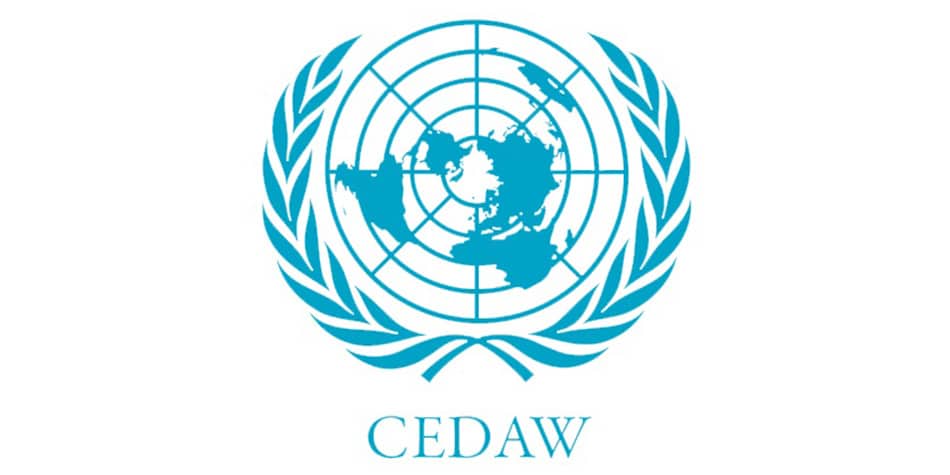
Article(s)
Abolitionist advocacy at the 88th CEDAW Session
on 7 June 2024
The 88th session of the Committee on the Elimination of Discrimination Against Women (CEDAW) was held in Geneva, Switzerland, from May 13 to 31, 2024.
2024
Brazil
Estonia
Gender
Kuwait
Malaysia
Montenegro
Republic of Korea
Rwanda
Singapore
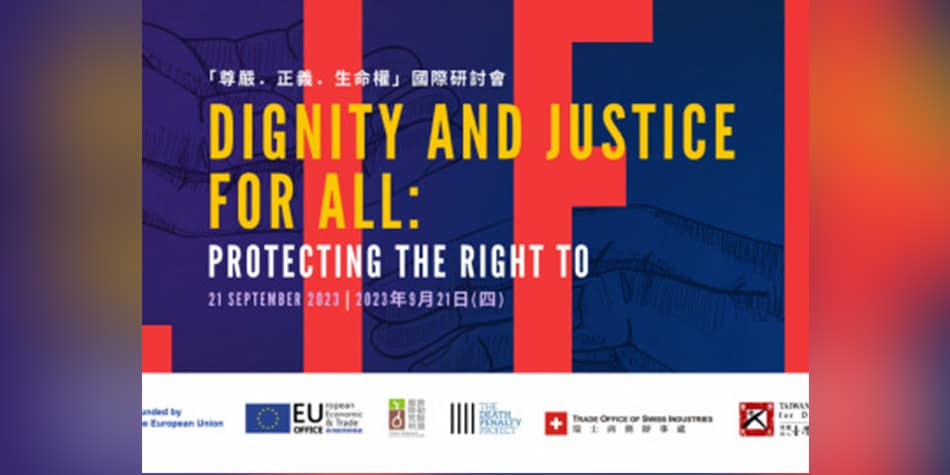
Article(s)
International Symposium on the Right to Life in Taiwan
By Taiwan Alliance to End the Death Penalty (TAEDP), on 12 January 2024
The Taiwan Alliance to End the Death Penalty (TAEDP) held a series of events including an international seminar, prison visit, and meetings that took place from 19-22 September 2023 to celebrate its 20th anniversary.
2024
Cruel, Inhuman and Degrading Treatment and Punishment
Death Row Conditions
India
Taiwan
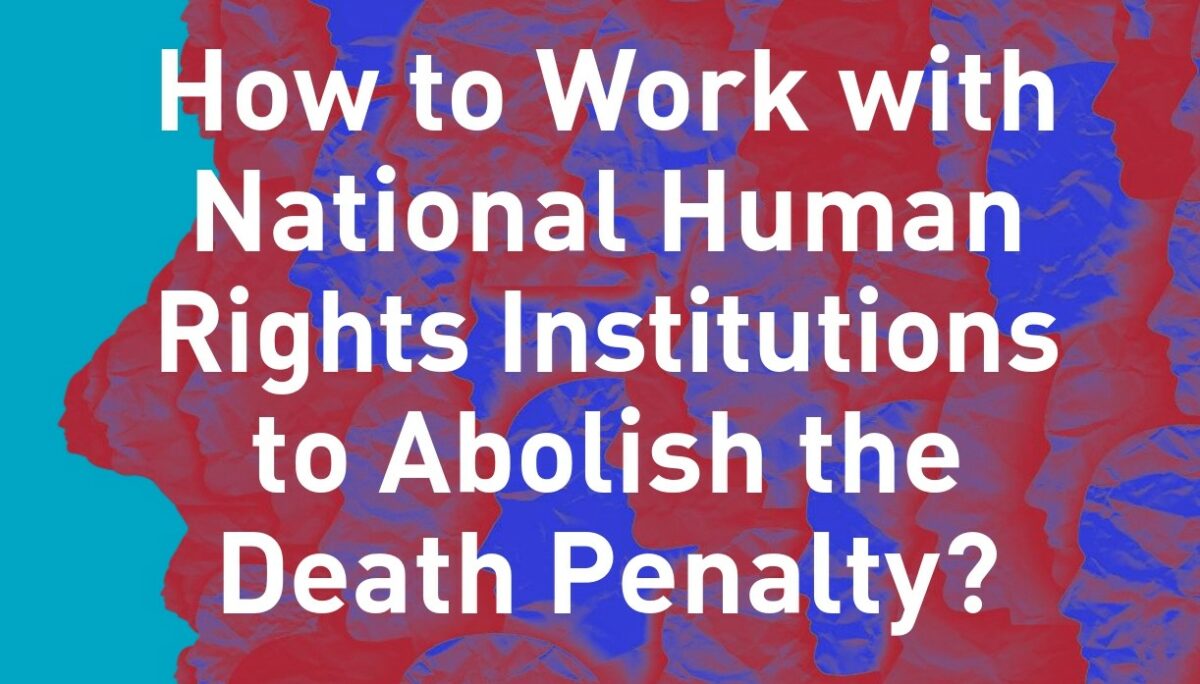
Article(s)
Publication of a New Guide on Working with National Human Rights Institutions to Abolish the Death Penalty
By Bronwyn Dudley, World Coalition Against the Death Penalty, on 17 November 2022
The World Coalition Against the Death Penalty has published a new how-to guide, in collaboration with Mr. Isidore Clément Capo-Chichi, President of the Beninese Commission on Human Rights. It is aimed for civil society organizations and illustrates how to collaborate with National Human Rights Institutions (NHRIs) to achieve the abolition of the death penalty. In […]
2022
Trend Towards Abolition

Article(s)
Abolition of the death penalty at the United Nations Human Rights Council 51st session
By World coalition against the death penalty, on 24 October 2022
The United Nations Human Rights Council met for its 51st regular session from September 12 to October 7, 2022. If you missed it, here is what happened regarding the abolition of the death penalty!
2022
Trend Towards Abolition
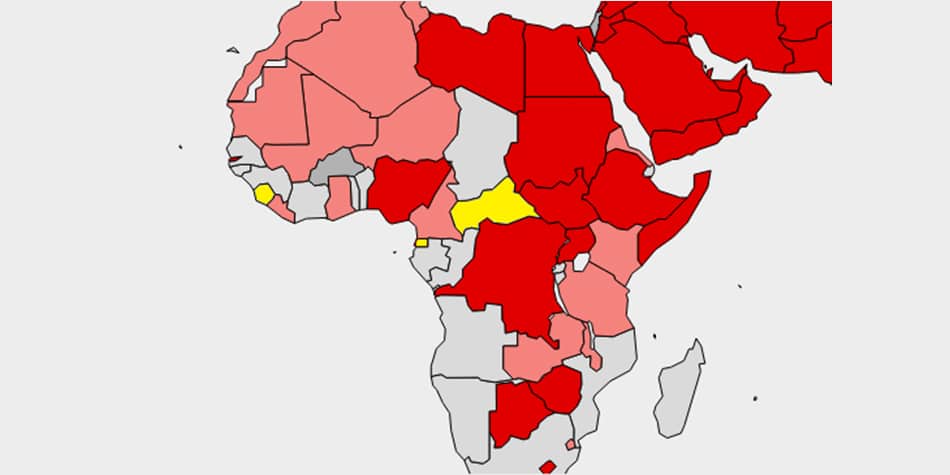
Article(s)
Africa : 3 abolitions of the death penalty in one year
By World Coalition Against the Death Penalty, on 20 October 2022
After Sierra Leone and the Central African Republic, Equatorial Guinea has adopted a new Penal Code that abolishes the death penalty for ordinary crimes.
2022
Central African Republic
Equatorial Guinea
Sierra Leone
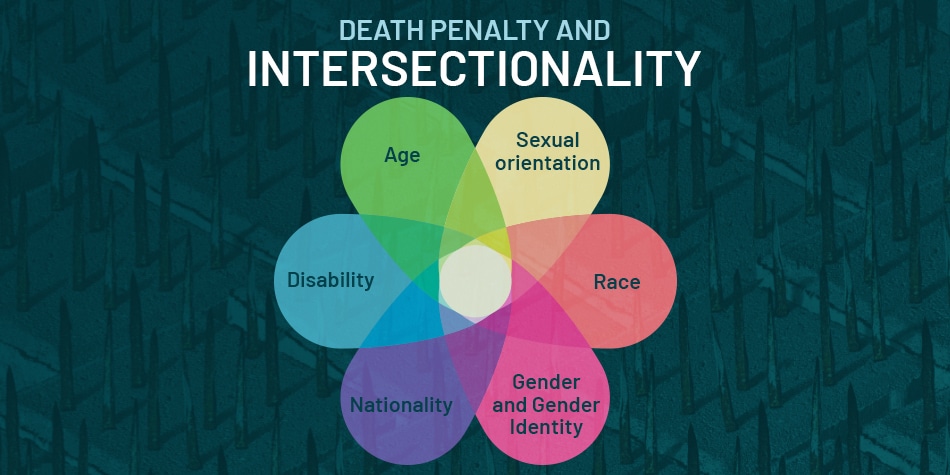
Article(s)
Joint statement on the death penalty and human rights of women and LGBTQIA+ individuals
By World Coalition Against the Death Penalty, on 10 October 2022
20th World Day against the Death Penalty On this 20th anniversary of the World Day Against the Death Penalty dedicated to the link between torture and the use of the death penalty and in continuation of the 2021 World Day Against the Death Penalty dedicated to women facing capital punishment, sentenced to death, executed, pardoned […]
2022
Cruel, Inhuman and Degrading Treatment and Punishment
Death Row Conditions
Fair Trial
Women
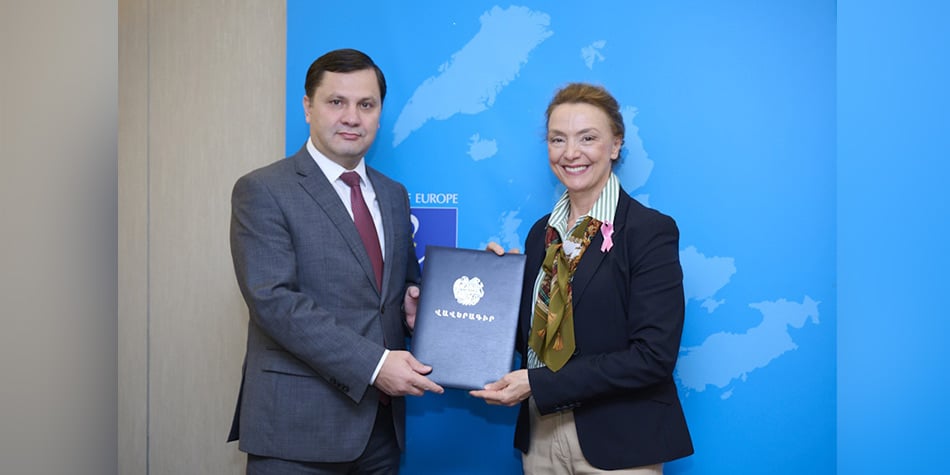
Article(s)
Entry into force of Armenia’s ratification of the European Protocol for abolition in all circumstances
By Aurélie Plaçais, on 22 March 2024
In February 2024, Armenia’s ratification of Protocol No. 13 to the Convention for the Protection of Human Rights and Fundamental Freedoms concerning the abolition of the death penalty in all circumstances entered into force. Armenia was already abolitionist for all crimes and a State Party to the Second Optional Protocol to the ICCPR, aiming at […]
2024
Armenia
Trend Towards Abolition
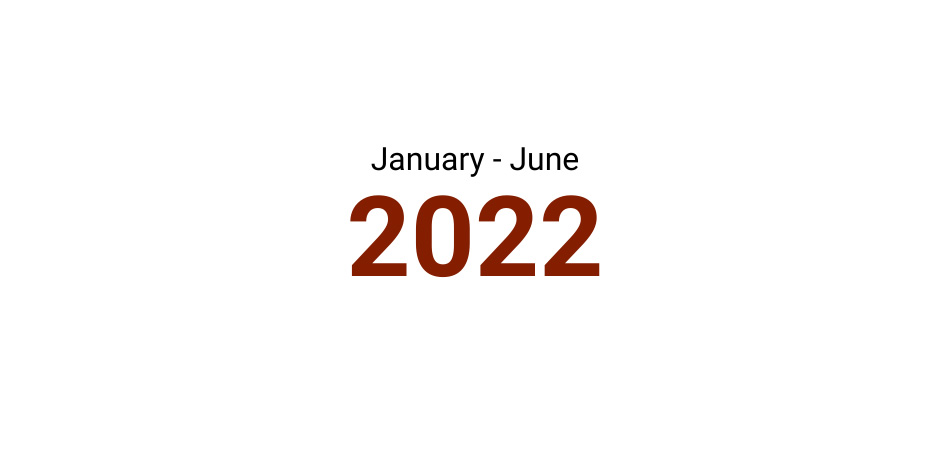
Article(s)
Mid-terms: A first half of 2022 rich in abolitions
By the World Coalition Against the Death Penalty, on 13 September 2022
The first six months of 2022 have been rich for the abolitionist community with two new abolitionist countries and a new ratification of the Second Optional Protocol to the International Covenant on Civil and Political Rights aiming at the abolition of the death penalty. However, some countries continue to use the death penalty and there […]
2022
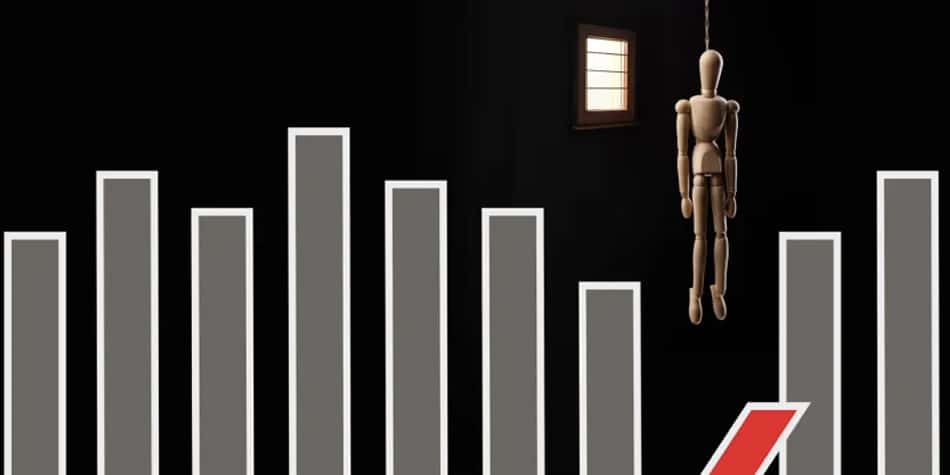
Article(s)
Unveiling Singapore’s Death Penalty Discourse: A Critical Analysis of Public Opinion and Deterrent Claims
By World coalition against the death penalty, on 27 March 2024
While Singapore’s Ministry of Home Affairs (MHA) maintains a firm stance on the effectiveness of the death penalty in managing drug trafficking in Singapore, the article presents evidence suggesting that the methodologies and interpretations of these studies might not be as substantial as portrayed.
2024
Singapore

Article(s)
Death Penalty Information Center’s Annual Summary
By Dunia Schaffa, on 27 February 2023
According to the Death Penalty Information Center (DPIC) annual review, 2022 has been the eighth consecutive year with less than 30 people executed and less than 50 people sentenced to death during the year in the United States of America.
2023
United States
Document(s)
Death by Design: Part 2
By The Wren Collective, on 23 January 2024
2024
NGO report
Legal Representation
United States
More details See the document
Published in December 2023.
In “Death by Design” Parts 1 and 2, Wren investigated the state of court-appointed capital representation in Harris County—the death penalty capital of the world. The second report examines why that poor representation has thrived, and the ways that the judges overseeing those cases have enabled it to continue that way.
Wren recommends a total overhaul to the system of capital representation for poor defendants in Harris County, with either the public defender absorbing those cases or the judges establishing a new, freestanding capital public defender that is independent from judicial oversight.
- Document type NGO report
- Countries list United States
- Themes list Legal Representation

Article(s)
The Sunny Center
By Jessica Corredor, on 30 July 2018
“Extraordinary things can happen to ordinary people and still be OK »The Sunny Center is a place like no other place in the world. Perched on the top of a hill, it is surrounded by lakes and hills that multiply as far as the eye can see. The landscape is breath-taking. But the landscape is nothing compared to the founders of the Sunny Center. Sunny Jacobs, 72, and Peter Pringle, soon 80, began welcoming innocent people into their homes in 2011.
2018
Death Row Conditions
Innocence
Ireland

Article(s)
Follow-up to the initiative on the conditions of detention and treatment of death row prisoners
By Nordine Drici (Planète Réfugiés) & Sandrine Ageorges-Skinner (ECPM), on 10 June 2019
PRDH, in partnership with ECPM and the University of Grenoble-Alpes, organized a side event on the conditions of detention and treatment of death row prisoners worldwide during the 7th World Congress against the Death Penalty in Brussels (27 February – 1 March 2019) which provided food for thought and some areas of work thanks to the presence of some thirty participants working in more than 10 countries in Africa, Asia, Europe and Latin America. The results of these discussions are shared in this article.
2019
Document(s)
Deathworthy: a mental health perspective of the death penalty
By Project 39A, on 7 October 2021
2021
Academic report
India
Mental Illness
More details See the document
A first of its kind report, Deathworthy, presents empirical data on mental illness and intellectual disability among death row prisoners in India and the psychological consequences of living on death row. The report finds that an overwhelming majority of death row prisoners interviewed (62.2%) had a mental illness and 11% had intellectual disability. The proportion of persons with mental illness and intellectual disability on death row is overwhelmingly higher than the proportion in the community population. The report also establishes correlations between conditions of death row incarceration and mental illness and ill-health. Led and conceptualised by Maitreyi Misra (Head, Mental Health and Criminal Justice, Project 39A, National Law University Delhi), the study was conducted under the guidance of Dr. Pratima Murthy (Director, NIMHANS), Dr Sanjeev Jain (Senior Professor, Deptt of Psychiatry, NIMHANS) and Dr Gitanjali Narayanan (Associate Professor, Deptt of Psychology, NIMHANS).
- Document type Academic report
- Countries list India
- Themes list Mental Illness

Member(s)
The Advocates for Human Rights
on 30 April 2020
The mission of The Advocates for Human Rights is to implement international human rights standards in order to promote civil society and reinforce the rule of law. By involving volunteers in research, education, and advocacy, The Advocates build broad constituencies in the United States and select global communities. In 1991, The Advocates adopted a formal […]
2020
United States
Document(s)
Indonesian – Laporan Global Amnesty International : hukuman mati dan eksekusi 2023
on 29 May 2024
2024
NGO report
Trend Towards Abolition
More details Download [ pdf - 897 Ko ]
Pemantauan yang dilakukan oleh Amnesty Internasional terhadap hukuman mati secara global
mencatat terdapat 1.153 eksekusi hukuman mati pada tahun 2023. Angka tersebut menunjukkan
adanya peningkatan sebanyak 31% dari 883 eksekusi pada tahun 2022. Namun, ada penurunan
yang signifikan pada angka negara yang menerapkan hukuman mati. Dari 20 negara pada 2022
menjadi hanya 16 negara di 2023
- Document type NGO report
- Themes list Trend Towards Abolition
Document(s)
More Indicators of the Falling Support for the Death Penalty
By Talia Roitberg Harmon and Michael L. Radelet, California Western International Law Journal , on 1 February 2024
2024
Academic Article
United States
More details See the document
Published on October 12, 2023.
In the seminal Furman v. Georgia case from 1972, the U.S. Supreme Court (in effect) invalidated all death penalty statutes then inforce in American jurisdictions. After many states went back to their legislative drawing boards, some of the revised statutes were approved by the Court in 1976. At that time, Gallup found that 66 percent of the American public supported the death penalty, while 26 percent stood opposed. While support grew to 80 percent in 1994, a recent Gallup Poll from October 2022 shows that this figure has dropped to 55 percent. Recently, only 36 percent of Americans still support the death penalty given the alternative punishment of life imprisonment.
- Document type Academic Article
- Countries list United States
Document(s)
The Road to Abolition?: The Future of Capital Punishment in the United States
By Charles J. Ogletree and Austin Sarat, on 24 August 2023
2023
Book
United States
More details See the document
At the start of the twenty-first century, America is in the midst of a profound national reconsideration of the death penalty. There has been a dramatic decline in the number of people being sentenced to death as well as executed, exonerations have become common, and the number of states abolishing the death penalty is on the rise. The essays featured in The Road to Abolition? track this shift in attitudes toward capital punishment, and consider whether or not the death penalty will ever be abolished in America.The interdisciplinary group of experts gathered by Charles J. Ogletree Jr., and Austin Sarat ask and attempt to answer the hard questions that need to be addressed if the death penalty is to be abolished. Will the death penalty end only to be replaced with life in prison without parole? Will life without the possibility of parole become, in essence, the new death penalty? For abolitionists, might that be a pyrrhic victory? The contributors discuss how the death penalty might be abolished, with particular emphasis on the current debate over lethal injection as a case study on why and how the elimination of certain forms of execution might provide a model for the larger abolition of the death penalty.
- Document type Book
- Countries list United States
Document(s)
The Death Penalty in Bahrain: A system built on torture
on 14 January 2022
2022
NGO report
Bahrain
arfrMore details See the document
Salam for Democracy and Human Rights (Salam DHR)’s report was published on October 10, 2021, to mark the 19th World Day Against the Death Penalty. The Death Penalty in Bahrain: A system built on torture, provides accessible and abridged information regarding the development of the death penalty in Bahrain.
This report examines how executions have expanded in both their criteria and implementation since the Arab Spring in 2011 and how this practice contradicts the Government of Bahrain’s (GoB) promises of reform made following the Bahrain Independent Commission of Inquiry (BICI) that same year. Instead, the Bahraini State continues to rely on confessions coerced under torture and threats as a method of permanently silencing poliIcal prisoners. The nation’s internal mechanisms of accountability have repeatedly proven themselves to be ineffective in remedying this situation and are possibly complicit. Considering these findings, and in support those who have been victimized, Salam DHR officially recommends that the GoB abolishes the death penalty, among other reforms.
- Document type NGO report
- Countries list Bahrain
- Available languages عقوبة الإعدام في البحرين : نظام مبني على التعذيبLa Peine de Mort à Bahreïn: Un Système Construit sur la Torture
Document(s)
Malawi – Committee on the Elimination of Discrimination Against Women – Death Penalty – January 2022
on 31 January 2022
2022
NGO report
World Coalition
Malawi
Women
More details Download [ pdf - 311 Ko ]
Detention conditions for women in Malawi are crowded, and women in prisons are not given adequate food and nutrition. Specifically, many prisons only serve people with one meal a day, often consisting of a maize meal (nsima) and peas or beans. Overcrowded conditions are a particular concern during the COVID-19 pandemic, when risk of transmission of the disease is high. Prison conditions in Malawi amount to inhuman and degrading treatment.
Women in death penalty proceedings in Malawi lack access to qualified legal representation. Defense advocates in Malawi who are assigned to capital cases often lack relevant experience. In at least one case, a lawyer failed to raise the complete defense of self-defense in representing a woman who killed her husband as a result of a long history of domestic abuse. Had the defense been raised, it is possible that the woman would not have been sentenced to death. Moreover, women from poor and marginalized communities are disproportionately affected by the death penalty because when they are accused of crimes, they are often unable to understand the charges against them because they are illiterate and cannot read the complaint against them. They are also unable to retain private counsel.
Women who face extensive gender-based violence are disproportionately affected by the death penalty in Malawi, including those who seek to protect themselves against their abusers. Long histories of gender-based violence can result in complex trauma and can exacerbate psycho-social or intellectual disabilities, yet sentencing courts fail to take these nefarious effects into account as factors in mitigation of a death sentence.
- Document type NGO report / World Coalition
- Countries list Malawi
- Themes list Women
Document(s)
The Power of Example: Whither The Biden Death Penalty Promise?
on 21 July 2022
2022
NGO report
United States
More details Download [ pdf - 4342 Ko ]
“The President, his administration and Congress must recognize that respect for human dignity and retention of the death penalty are incompatible; that respect for the rule of law must include international human rights law guaranteeing protection of the rights of those facing the death penalty; that upholding universal rights must include upholding the right of everyone to life and freedom from cruel, inhuman or degrading treatment or punishment; and that making international institutions stronger must include implementing the conclusions of UN human rights treaty bodies,”
- Document type NGO report
- Countries list United States
Document(s)
The Death Penalty in Kenya: A Punishment that has Died Out in Practice, Part Two – Overwhelming Support for Abolition Among Opinion Leaders
on 15 June 2022
2022
NGO report
Kenya
Public Opinion
More details See the document
In 2021, The Death Penalty Project and the Kenya National Commission on Human Rights, in partnership with the Australian National University commissioned Prof. Carolyn Hoyle, Director of The Death Penalty Research Unit, at the University of Oxford, to undertake research in order to provide accurate data on attitudes towards the death penalty in Kenya and facilitate a constructive conversation on the future of capital punishment. The research examined the views of both the general public in Kenya and also opinion formers, those considered influential in shaping, and responding to, national views.
Key findings :
– The vast majority of opinion formers that took part in the interviews were in favour of abolishing the death penalty.
– 90% of opinion formers were in favour of abolishing the death penalty
– 82% of opinion formers were strongly in favour of of abolishing the death penalty
– Most of the opinion formers interviewed were very well informed on the administration of the death penalty in Kenya.
– Across both groups there were concerns around the possibility that innocent people could be sentenced to death.
– 88% of opinion formers believe wrongful convictions occur fairly regularly
– 93% of opinion formers thought Kenya should be influenced by high rates of abolition around the world
– Opinion formers believed that 75% of the public would accept abolition of the death penalty, despite initial reservations.
- Document type NGO report
- Countries list Kenya
- Themes list Public Opinion
Document(s)
The Clemency Process in East and Southeast Asia
on 22 March 2022
2022
NGO report
China
Clemency
Indonesia
Japan
Malaysia
Singapore
Taiwan
Thailand
Viet Nam
More details Download [ - 0 Ko ]
In this report, we summarise the current international position on clemency and the death penalty and compare it to snapshots of the clemency processes in the following Southeast and East Asian countries: Thailand, Malaysia, Singapore, Indonesia, Vietnam, Japan, Taiwan, and China. All references to clemency in this paper are in the context of reprieve from the death penalty.
- Document type NGO report
- Countries list China / Indonesia / Japan / Malaysia / Singapore / Taiwan / Thailand / Viet Nam
- Themes list Clemency
Document(s)
Explaining the Invidious: How Race Influences Capital Punishment in America
By Sheri Lynn Johnson, James and Mark Flanagan, Cornell Law School, on 1 September 2022
2022
Academic report
United States
More details See the document
This article primarily focuses on how racial bias creates nearly ubiquitous racial disparities in the imposition of the death penalty; it does so both to amass further reasons McCleskey was wrongly decided, and to point the way forward. Part I provides the necessary foundation by summarizing the history of race and the death penalty in the United States, with a focus on the Supreme Court’s treatment of racial discrimination claims in capital sentencing. Part II, the heart of this Article, examines the multiple psychological mechanisms that create racially biased decision making in capital cases. Understanding those mechanisms further undercuts the Supreme Court’s reasoning in McCleskey and argues for overturning the holding. However, recognizing the reluctance with which today’s Court would view overturning McCleskey, Part III considers whether and how alternative, case-specific uses of the data described in Part II might ameliorate the influence of racial bias in capital sentencing.
- Document type Academic report
- Countries list United States
Document(s)
Iraq – Committee Against Torture – Death Penalty – March 2022
on 18 March 2022
2022
NGO report
World Coalition
Iraq
More details Download [ pdf - 250 Ko ]
This report provides an update to the coauthors’ report at the List of issues stage and responds to the State party’s responses to the Committee’s questions in the List of issues that touch on the death penalty.
- Document type NGO report / World Coalition
- Countries list Iraq
Document(s)
The Maldives – Committee on the Elimination of Discrimination Against Women – Death Penalty – September 2021
on 20 September 2021
2021
NGO report
World Coalition
Maldives
More details Download [ pdf - 263 Ko ]
The Maldives’ continued use of the death penalty undermines government efforts and commitments to end gender-based discrimination. The death penalty invites discriminatory sentences against women for adultery and other crimes of sexual immorality, as well as for acting as accomplices to murder committed by male counterparts. Capital punishment promotes negative stereotypes about women and reinforces discriminatory gender roles. The possibility of facing the death penalty also discourages human rights defenders from civic engagement on a number of human rights issues, including women’s human rights.
- Document type NGO report / World Coalition
- Countries list Maldives
Document(s)
How to Insert Gender issues in Abolitionist Advocacy?
By World Coalition against the Death Penalty, on 1 August 2023
2023
Lobbying
Gender
frMore details Download [ pdf - 710 Ko ]
This tool was developed by the World Coalition Against the Death Penalty (World Coalition) in partnership with the Advocates for Human Rights (TAHR), after noting the limited integration of gender issues into the abolitionist advocacy of the World Coalition’s member organizations. This tool has also been edited and enrichened by the World Coalition’s Gender Working Group.
As part of the “Leave No Woman Behind on Death Row” project, this tool aims to assist World Coalition members and partners in implementing gender-sensitive abolitionist advocacy.
In this document, intended to be a practical tool, guidance is provided on how to incorporate gender-specific recommendations into abolitionist advocacy with human rights bodies. This tool focuses recommendations made by civil society organizations (CSOs) to international and regional human rights bodies, intended to encourage national authorities to act in a certain way. Human rights mechanisms and bodies serve as crucial actors in legitimizing and supporting CSOs work on the ground. A recommendation made by a CSO can, in turn, be accepted by a human rights special mechanism and be transformed into an official recommendation to the State. From there, CSOs can continue to use this official recommendation in their national advocacy to strengthen their claim and position, fulfilling a virtuous circle in advocacy work.
In this document, the recommendations made are done pending full abolition of the death penalty. They are seen as transitional steps towards full abolition of the death penalty in law and in practice.
This tool is divided into two sections. The first part focuses on how to increase visibility of the discrimination faced by women in the judicial process leading to the death penalty. The second part focuses on the discrimination faced by LGBTQIA+ people during the same judicial process. In both sections, definitions are provided as well as background information in order to understand the issues at stake in each of the themes.
- Document type Lobbying
- Themes list Gender
- Available languages Comment insérer les questions de genre dans le plaidoyer abolitionniste ?
Article(s)
3rd World Congress Report: a 400-page strategy
on 22 April 2008
The report of the Paris World Congress, organised by Together Against the Death Penalty with the help of the World Coalition in Paris in 2007, is just out. Its aim is to serve as a “guide to abolitionist strategy”.
2008
Document(s)
Compendium of case law of the European Court of Human Rights on the death penalty and extrajudicial execution
By Jeremy McBride, Council of Europe, on 24 April 2022
2022
International law - Regional body
Legal Representation
More details See the document
The compendium’s aim is to assist national judges, prosecutors and lawyers from the 46 member states of the Council of Europe to deal with extradition or deportation cases when there is a risk of the death penalty being imposed in third countries or of extrajudicial execution. It also aims at enabling legal professionals from countries where the death penalty still exists to develop arguments based upon the reasoning of the case law of the European Court of Human Rights. It contains relevant extracts from the Court’s case law, structured in a user-friendly way.
- Document type International law - Regional body
- Themes list Legal Representation
Document(s)
The Culture of Capital Punishment in Japan
By David T. Johnson, on 4 July 2020
2020
Academic report
Japan
More details See the document
Japan retains the death penalty for three main reasons: because it missed a major opportunity for abolition in the postwar Occupation, because of the long hegemony of the (conservative) Liberal Democratic Party, and because (like the United States and China) it has sufficient size, economic influence, and political clout to enable it to defy human rights norms. Capital punishment also persists in Japan because it performs welcome functions for politicians, prosecutors, media, and the public.
Despite widespread belief to the contrary, capital punishment in Japan does not deter homicide better than long terms of imprisonment do.
- Document type Academic report
- Countries list Japan
Document(s)
Cameroon – Committee to Eliminate Racial Discrimination – Death Penalty – March 2020
By RACOPEM, ACAT Cameroun, on 21 March 2020
2020
NGO report
World Coalition
Cameroon
More details Download [ pdf - 1898 Ko ]
This report addresses Cameroon’s compliance with human rights obligations under the Convention on the Elimination of All Forms of Racial Discrimination, particularly with respect to the imposition of the death penalty against Anglophone Cameroonians.
By way of background, the Anglophone crisis in Cameroon began in 2016 as peaceful protests by lawyers and teachers demanding linguistic reforms but rapidly escalated into a war of secession that has killed thousands of people and displaced over one million.
The Cameroonian Criminal Code adopted in 2016 allows for the death penalty, including for vaguely defined terrorism-related offences. In this regard, the Anti-Terrorism Law of 2014 has been used to prosecute Anglophone human rights activists before military courts for acts of terrorism, secession, rebellion, and spreading false news, with the death penalty as a potential sentence in such cases.
While Cameroon ratified the International Covenant on Civil and Political Rights (ICCPR) in 1984, it has yet to ratify its Second Optional Protocol aiming at the abolition of the death penalty (ICCPR-OP2). Although no execution has taken place in Cameroon since 1997, civil society organizations estimate that 220 people currently are under sentence of death in Cameroon.
As discussed below, Cameroon fails to uphold its obligations under the International Convention on the Elimination of All Forms of Racial Discrimination because its domestic law and institutional and political framework do not sufficiently protect Anglophones facing the death penalty.
- Document type NGO report / World Coalition
- Countries list Cameroon
Article(s)
1,700-mile “Walk4Life” across the US
on 13 March 2008
American hip-hop artist Andre Latallade, also known as Capital-“X”, will walk 1,700 miles from New Jersey to Texas from March 31 to campaign against the death penalty.
2008
Drug Offenses
United States
Document(s)
Death Penalty in India: Annual Statistics Report 2023
By Project 39A, on 15 February 2024
2024
NGO report
India
More details See the document
Published in 2023.
This is the eighth edition of the Death Penalty in India: Annual Statistics Report. This annual publication presents changes in the death row population as well as political and legal developments in the administration of the death penalty in India each year. The statistics are compiled through a combination of data mining of court websites, media monitoring and Right to Information applications.
- Document type NGO report
- Countries list India
Document(s)
2020 Activity Report
By World Coalition Against the Death Penalty, on 9 September 2021
2021
World Coalition
frMore details Download [ pdf - 496 Ko ]
Activity Report of the World Coalition Against the Death Penalty for 2020, as adopted by its General Assembly on 18 June 2021
- Document type World Coalition
- Available languages Rapport d'Activité 2020
Document(s)
TESTIMONIES- 21 st World Day Against the Death Penalty
on 10 July 2023
2023
Campaigning
World Coalition
frMore details Download [ pdf - 759 Ko ]
This document has been compiled by the Secretariat of the World Coalition Against the Death Penalty with substantial aid from member organizations, including Abdorrahman Boroumand Center, Amnesty International, Cornell Center on the Death Penalty Worldwide, Free Mumia ! French Support Group (Collectif français “Libérons Mumia !”), German Coalition Against the Death Penalty, Justice Project Pakistan, […]
- Document type Campaigning / World Coalition
- Available languages TEMOIGNAGES - 21ème Journée mondiale contre la peine de mort
Article(s)
Internship opportunity at Centre on the Death Penalty, NLU Delhi
By NLU Delhi, on 1 April 2016
The Centre on the Death Penalty is keen to develop a robust and rewarding internship programme that will provide meaningful exposure to the complexities and nuances, in particular, of the administration of the death penalty and the criminal justice system in India more generally, therefore the centre introduces internship program where they accept interns on rolling basis.
2016
India
Document(s)
Women and The Death Penalty in Kenya: Essays on the Gendered Perspective of the Death Penalty
on 2 February 2024
2024
NGO report
Death Row Conditions
Fair Trial
Gender
Kenya
Women
More details See the document
This publication seeks to make visible the gender and intersectional discrimination faced by women in the judicial process leading to the death penalty. Through the various articlesin this publication, the authors bring to light the reality of women facing the death penalty through a different lens.
The first author, Shekinah Bright Kiting’a, in making a compelling case for abolition of the death penalty, explores how the death penalty uniquely affects women in the context of motherhood. Further, she highlights the rights and well-being of the children affected by their mothers’ death sentences, revealing flaws in our legal and ethical systems. With the overall aim of advocating for its abolition due to its significant impact on both parenthood and children’s rights, her article seeks to push for reforms that honour motherhood and prioritize children’s well-being in these difficult circumstances.
Kenaya Komba dissects gender disparity in the judicial system by exploring the intersection of domestic violence and the death penalty. In making a case for a restorative approach to justice, her article analyses the impact of capital punishment on victims of domestic violence and the systemic injustice and biases they continue to grapple with. Her elaborate analysis of the Constitution of Kenya, 2010 and the Protection Against Domestic Violence Act, 2016, highlights the urgent need for reform in the legal system.
While Analyzing the role the media plays in shaping perceptions of women on death row, Patricia Chepkirui evaluates the implications of positive and negative media portrayals of such women by highlighting the ethical responsibilities of media in the coverage of women on death row cases. The article ultimately underscores the significance of responsiblemedia coverage in ensuring that media exposure of cases of women on death row is fair,balanced, and respectful of their rights and dignity.
Alex Tamei delves into the intricacies of abuse, gender-based violence, and trauma as mitigating factors in death penalty sentencing for women. His article comparatively analyses two Kenyan cases of murder in retaliation to intimate partner violence, seeking to shed light on the plight of victims of gender-based violence. The article effortlessly brings out the nexus between the death penalty and intimate partner violence and makessolid recommendations for change.
The fifth author, Patience Chepchirchir, delves into the nexus between psychological abuse and provocation. Through her article, she brings out the scope of psychological abuse while focusing on the linkage between emotional abuse and provocation and how the same can be considered as mitigating factors. Through an elaborate analysis of case law, she makes a case for psychological abuse of women as a mitigating circumstance during sentencing.
Stella Cherono’s article reflects on the intersectional discrimination faced by women in the criminal trial process leading to death row. The article highlights the complex and overlapping forms of discrimination women experience during the pretrial, trial and sentencing stages. Through her comprehensive analysis of gendered pathways to offending and imprisonment, she challenges how society perceives discrimination.
Loraine Koskei Interrogates the emerging jurisprudence on Intimate Partner Violence.Her article lays out the gendered factor in the commissioning and sentencing of women convicted of murder and offers possible recommendations.
- Document type NGO report
- Countries list Kenya
- Themes list Death Row Conditions / Fair Trial / Gender / Women
Document(s)
Death by Design: Part 1
By The Wren Collective , on 23 January 2024
2024
NGO report
Legal Representation
United States
More details See the document
Published in December 2023.
In “Death by Design” Parts 1 and 2, Wren investigated the state of court-appointed capital representation in Harris County—the death penalty capital of the world.The first report delves into the failings of the lawyers in capital cases.
Wren recommends a total overhaul to the system of capital representation for poor defendants in Harris County, with either the public defender absorbing those cases or the judges establishing a new, freestanding capital public defender that is independent from judicial oversight.
- Document type NGO report
- Countries list United States
- Themes list Legal Representation
Document(s)
Abolitionnist portrait
By World Coalition against the death penalty , on 10 October 2004
2004
Campaigning
Trend Towards Abolition
frMore details See the document
Abolitionnist portrait
- Document type Campaigning
- Themes list Trend Towards Abolition
- Available languages Portrait d'abolitionnistes
Document(s)
Qatar – Human Rights Committee – Death Penalty – January 2022
on 31 January 2022
2022
NGO report
World Coalition
Qatar
More details Download [ pdf - 236 Ko ]
Qatar had been maintaining a de facto moratorium on executions since 2000, but courts continued to sentence people to death. In 2020, however, Qatar executed a Nepali migrant worker by firing squad. Qatar’s death penalty practices are not in compliance with the Covenant. Qatar does not limit the death penalty to the most serious crimes, it is not taking steps toward a de jure moratorium on executions or ratification of the Second Optional Protocol, and it does not ensure that defendants in capital cases have a fair trial. Recent history suggests that a migrant worker may be more likely to be sentenced to death and executed for killing a Qatari national, as opposed to a non-citizen. Migrant workers are particularly vulnerable in the context of the country’s criminal legal system.
- Document type NGO report / World Coalition
- Countries list Qatar
Document(s)
Lebanon – Committee on the Elimination of Discrimination Against Women – Death Penalty
on 12 January 2022
2022
NGO report
World Coalition
Lebanon
Women
More details Download [ pdf - 1599 Ko ]
This report addresses Lebanon’s compliance with human rights obligations under the Convention on the Elimination of All Forms of Discrimination Against Women regarding its use of the death penalty.
Lebanon has not abolished the death penalty or established a de jure moratorium on the death penalty. The legal system does not protect women in conflict with the law from discrimination on the basis of sex or gender. Nor does it limit capital offenses to the “most serious” crimes.
Women migrant domestic workers appear to be at an elevated risk of being sentenced to death. Indeed, all three women known to be on death row in Lebanon are Sri Lankan migrant domestic workers. Such women face heightened obstacles to realizing their right to a fair trial. Moreover, there is no evidence that sentencing authorities take into account a woman’s history of abuse when determining an appropriate sentence. Finally, women under sentence of death face degrading conditions of detention.
- Document type NGO report / World Coalition
- Countries list Lebanon
- Themes list Women
Document(s)
Executing the Insane Is Against the Law of the Land. So Why Do We Keep Doing It?
By Stephanie Mencimer / Mother Jones, on 1 January 2015
2015
Article
United States
More details See the document
A recent article in Mother Jones examines lingering questions in the determination of which inmates are exempt from execution because of mental incompetency. In 1986, the U.S. Supreme Court ruled in Ford v. Wainwright that a person could not be executed if he or she was “unaware of the punishment they’re about to suffer and why they are to suffer it.” The 2007 ruling in Panetti v. Quarterman updated that decision, with Justice Anthony Kennedy writing, “A prisoner’s awareness of the State’s rationale for an execution is not the same as a rational understanding of it.” Scott Panetti (pictured), the inmate involved in the 2007 case, knew that the state of Texas planned to execute him for the murder of his in-laws, but also sincerely believed that he was at the center of a struggle between God and Satan and was being executed to stop him from preaching the Gospel.
- Document type Article
- Countries list United States
- Themes list Intellectual Disability,
Document(s)
2022 World Day Report
By World coalition against the death penalty, on 12 June 2023
2023
Campaigning
World Coalition
frMore details Download [ pdf - 1557 Ko ]
On 10 October 2022, the World Coalition and abolitionists around the world celebrated the 20th World Day Against the Death Penalty (‘World Day’). Every year on World Day, the World Coalition highlights one problematic aspect of the Death Penalty.
- Document type Campaigning / World Coalition
- Available languages Rapport journée mondiale 2022
Document(s)
World Coalition Activity Report 2022
By World Coalition Against the Death Penalty, on 22 August 2023
2023
World Coalition
Trend Towards Abolition
frMore details Download [ pdf - 323 Ko ]
- Document type World Coalition
- Themes list Trend Towards Abolition
- Available languages Rapport d'Activité de la Coalition Mondiale 2022
Document(s)
Detailed Factsheet
By World coalition against the death penalty , on 10 October 2011
2011
Campaigning
Trend Towards Abolition
frMore details Download [ pdf - 201 Ko ]
Detailed Factsheet 2019
- Document type Campaigning
- Themes list Trend Towards Abolition
- Available languages Fiche détaillée 2011
Member(s)
Coordination Eveil et cause pour l’Unité nationale et la lutte contre l’esclavage
on 30 April 2020
The Coordination Eveil et cause pour l’Unité nationale et la lutte contre l’eclavage is a non-governmental organization focused on the fight against slavery and its aftereffects. Created on 22 February 2012, it promotes a culture of Human rights and strenghten the national unity and and the bonds of love and brotherhood between every part of […]
2020
Mauritania
Document(s)
Living Under Sentence of Death
on 22 April 2022
2022
Academic report
NGO report
Bangladesh
Death Row Conditions
More details See the document
In 2019-20, The Department of Law at the University of Dhaka, in collaboration with the Bangladesh Legal Aid and Services Trust (BLAST) and The Death Penalty Project, conducted a study to investigate socio-economic characteristics and experiences of death row prisoners in Bangladesh.
Bangladesh continues to retain and implement the death penalty, with several executions taking place each year. Excluding laws relating to the defence forces and international crimes, there are currently 33 crimes punishable by death. 25 of these offences are non-lethal and arguably do not meet the threshold of the ‘most serious crimes’ under international law.
Inspired by similar studies in other countries, a pilot study was commissioned to examine the demographics and experiences of those sentenced to death. Consistent with those studies around the world, our findings evidence that the death penalty in Bangladesh is disproportionately used against the most vulnerable and marginalised sections of society.
72% of prisoners were classified as economically vulnerable
53% of prisoners were in low-paid work or unemployed
87% of prisoners had no qualifications beyond secondary school level
15% of prisoners had no formal education.
The study also raised serious concerns around the treatment of prisoners, the length of time prisoners spent in prison under the sentence of death and the integrity of criminal investigations and trial.
33% of prisoners’ families alleged their relative had been tortured in police custody, 5% suspected this and 15% refused to comment
60% of respondents were not satisfied with the trial process, with some claiming that the courts had failed to properly appreciate the evidence
On average it took over 10 years for death row cases to be disposed by the HCD (where sentences are confirmed). Prolonged time spent in isolation on death row, has been declared inhumane and degrading in many countries.
The sample consisted of 39 individuals on death row, evidence from their case files and face-to-face interviews with their families were conducted under rigorous ethical guidelines to reveal their profiles and experiences. Despite its small size, the sample is indicative of the general prison population allowing us to draw conclusions on possible trends.
- Document type Academic report / NGO report
- Countries list Bangladesh
- Themes list Death Row Conditions
Article(s)
World Coalition calls on Canada to keep up its efforts against the death penalty
on 10 March 2009
The World Coalition has sent a letter to Canadian Prime Minister Stephen Harper, asking him to “protect its nationals sentenced to death abroad, whether it is in a democratic country or not”.
2009
Canada
Canada
Clemency
United States
PHIL_2_page_handout_EN
on 10 August 2021
2021
Document(s)
Initiatives World Day 2006
By World Coalition against the death penalty , on 10 October 2006
2006
Campaigning
Trend Towards Abolition
frMore details See the document
Initiatives World Day 2006
- Document type Campaigning
- Themes list Trend Towards Abolition
- Available languages Initiatives journée mondiale 2006
Document(s)
Getting to Death: Race and the Paths of Capital Cases after Furman
By Fagan, Jeffrey and Davies, Garth and Paternoster, Raymond, Columbia Public Law Research Paper, Forthcoming, Cornell Law Review, Vol. 107, No. 1565, 2022, on 13 January 2023
2023
Academic report
Fair Trial
United States
More details See the document
Decades of research on the administration of the death penalty have recognized the persistent arbitrariness in its implementation and the racial inequality in the selection of defendants and cases for capital punishment. This Article provides new insights into the combined effects of these two constitutional challenges. We show how these features of post-Furman capital punishment operate at each stage of adjudication, from charging death-eligible cases to plea negotiations to the selection of eligible cases for execution and ultimately to the execution itself, and how their effects combine to sustain the constitutional violations first identified 50 years ago in Furman. Analyzing a dataset of 2,328 first- degree murder convictions in Georgia from 1995–2004 that produced 1,317 death eligible cases, we show that two features of these cases combine to produce a small group of persons facing execution: victim race and gender, and a set of case-specific features that are often correlated with race. We also show that these features explain which cases progress from the initial stages of charging to a death sentence, and which are removed from death eligibility at each stage through plea negotiations. Consistent with decades of death penalty research, we also show the special focus of prosecution on cases where Black defendants murder white victims. The evidence in the Georgia records suggests a regime marred less by overbreadth in its statute than capriciousness and randomness in the decision to seek death and to seek it in a racially disparate manner. These two dimensions of capital case adjudication combine to sustain the twin failures that produce the fatal lottery that is the death penalty.
- Document type Academic report
- Countries list United States
- Themes list Fair Trial
Document(s)
The Use of the Death Penalty as a Bargaining Chip in Innocence Cases
By Claudia I. Salinas, California Western International Law Journal, on 1 February 2024
2024
Academic Article
United States
More details See the document
Published in 2023.
While 70% of the world’s countries have abolished the death penalty, also known as capital punishment, much of the United States continues to use it in its criminal legal proceedings.According to the Death Penalty Information Center, at least 190 people were exonerated prior to their fated execution date after being wrongly convicted and sentenced to death in the United States. There is no way to tell how many of the 1,562 people, who have been executed in the United States, were actually innocent. As there are wrongful convictions still happening today, it is no surprise that most countries consider the death penalty a human rights issue.
- Document type Academic Article
- Countries list United States
Document(s)
Cuba – Committee Against Torture – Death Penalty – March 2022
on 21 March 2022
2022
NGO report
World Coalition
Cruel, Inhuman and Degrading Treatment and Punishment
Cuba
More details Download [ pdf - 250 Ko ]
Cuba has maintained a de facto moratorium on the imposition of the death penalty since its last reported execution in 2003. In 2010, Cuba’s Supreme Court commuted the death sentence of Cuba’s last remaining death row inmate. As of the date of this report, there is no record of an individual currently sentenced to death. Although a de facto moratorium is in place, Cuba has not committed to a de jure abolition of the death penalty, citing national security concerns.
- Document type NGO report / World Coalition
- Countries list Cuba
- Themes list Cruel, Inhuman and Degrading Treatment and Punishment

